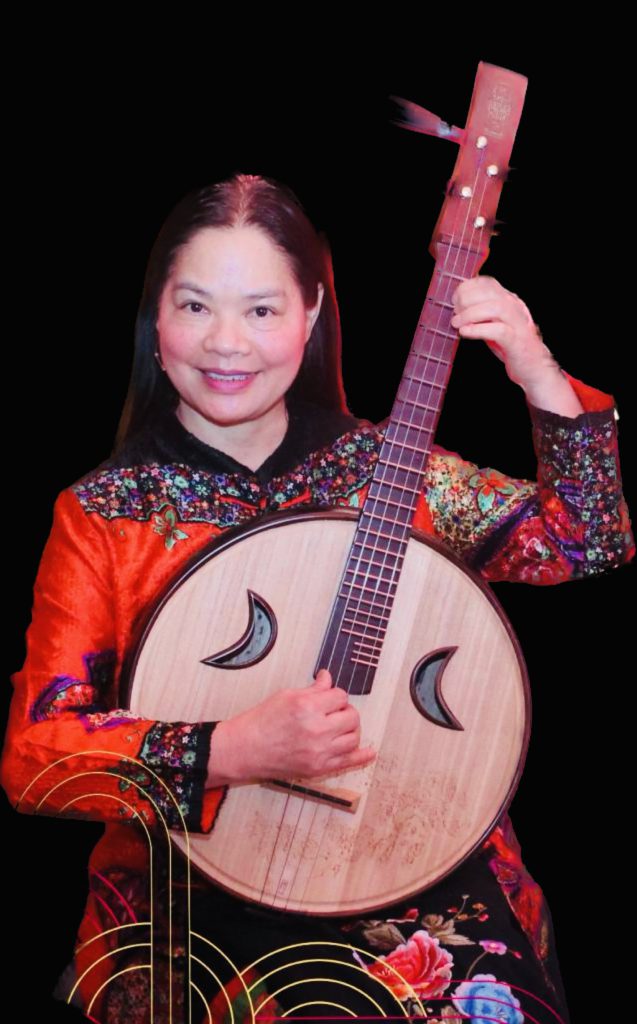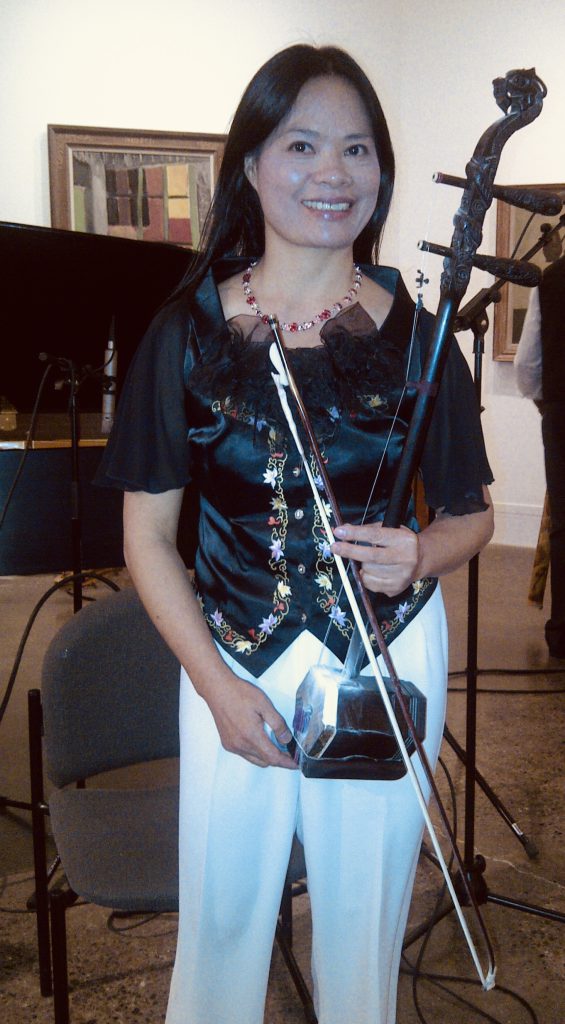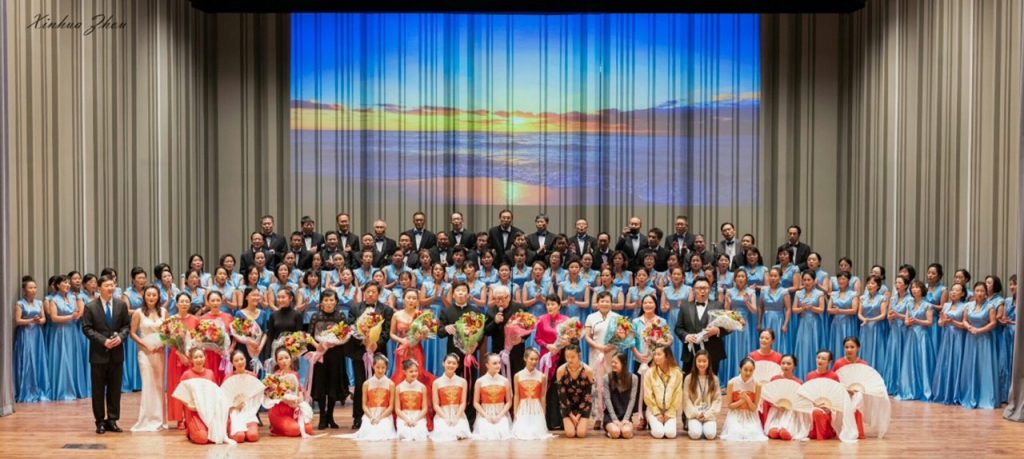Qin Qian’s Biography
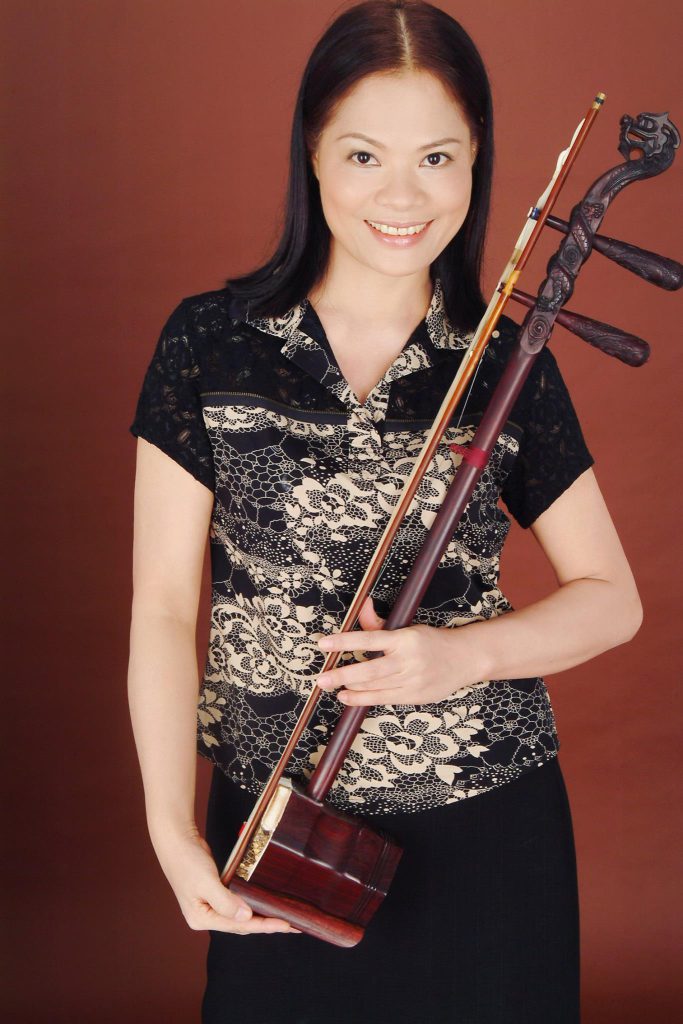
Qin Qian started learning the erhu and accordion from her father in her childhood. Ms. Qin entered the Guangxi Art College in Nanning at 16, majoring in erhu performance. She studied the erhu with Professor Huang Qidu(Graduated from China Central Conservatory of Music. The second-generation successor of Mr. Liu Tianhua, the master of modern Chinese folk music and the originator of the erhu, under the tutelage of Mr. Chen Zhenduo and Mr. Lan Yusong)and Zhang Yuming (Erhu Master of the former China Oriental Song and Dance Company). After she graduated, she worked as an erhu performer and teacher. In 1986, she began work as a reporter, music program editor and program host for the Nanning city radio station. In this job, she was able to interview many famous Chinese musicians. The music program she hosted and the paper she wrote won the second prize at the national level (China).
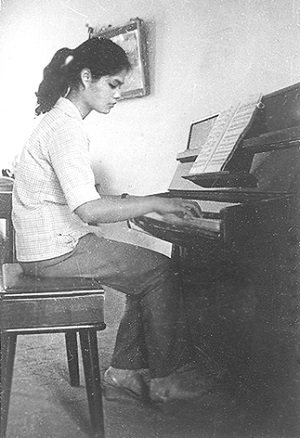
Qin Qian practice the piano in Guangxi Art College ( 16 Years old)
覃茜在广西艺术学院琴房里练琴(16岁)
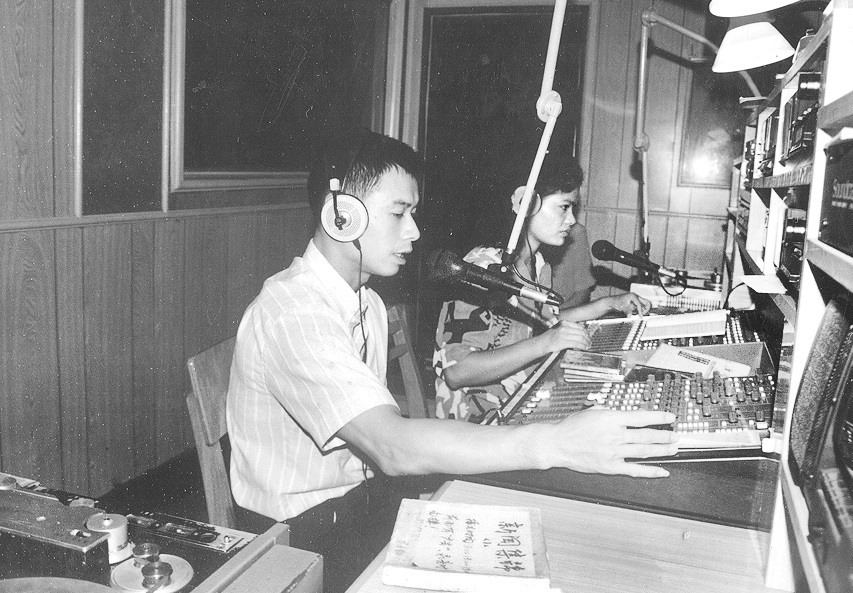
在南宁电台专访体操王子李宁(1992)
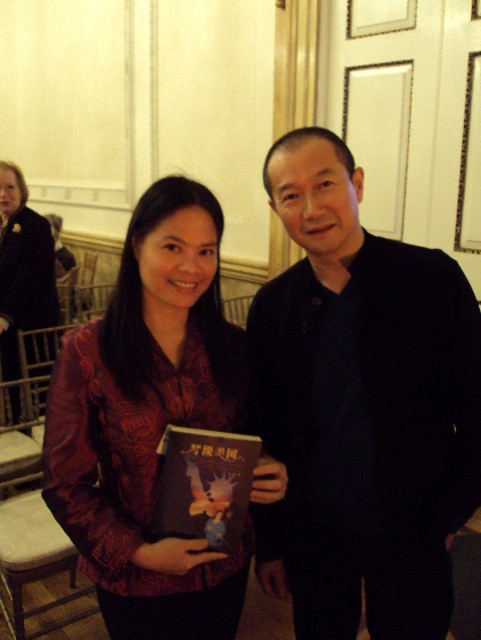
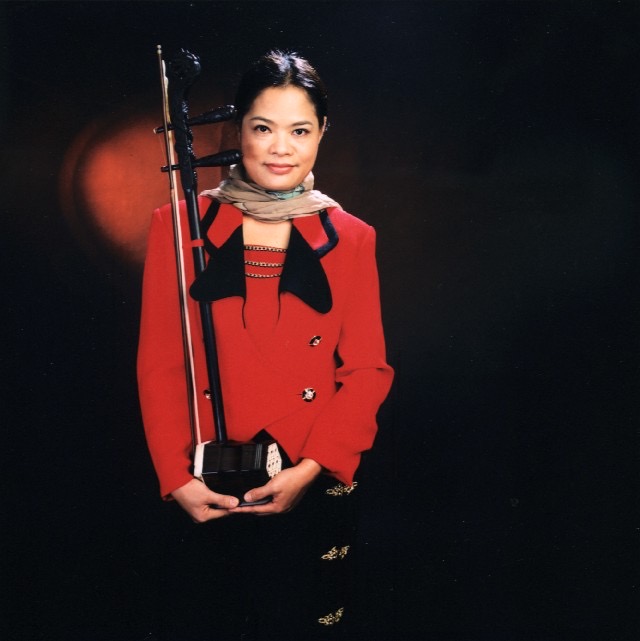
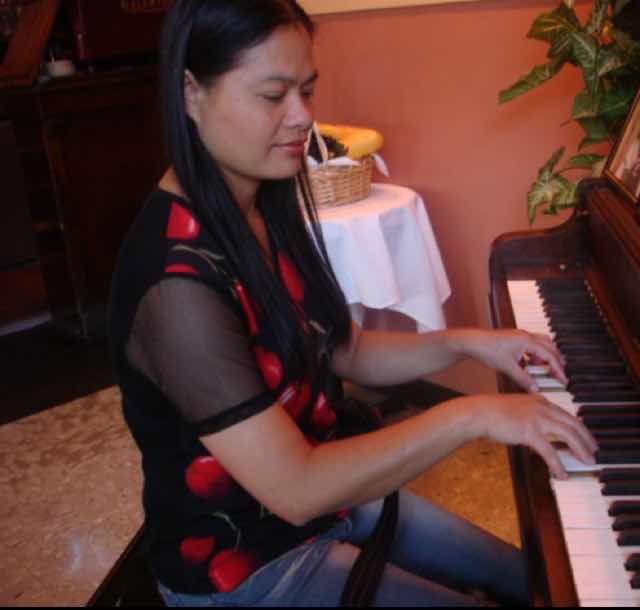
Qin Qian also plays the piano, monochord, and ruan; a string instrument that resembles a banjo. She likes to write and has written two books, “My Dreams Soar With Music” (2003) and “A Musical Journey in America” (2005).
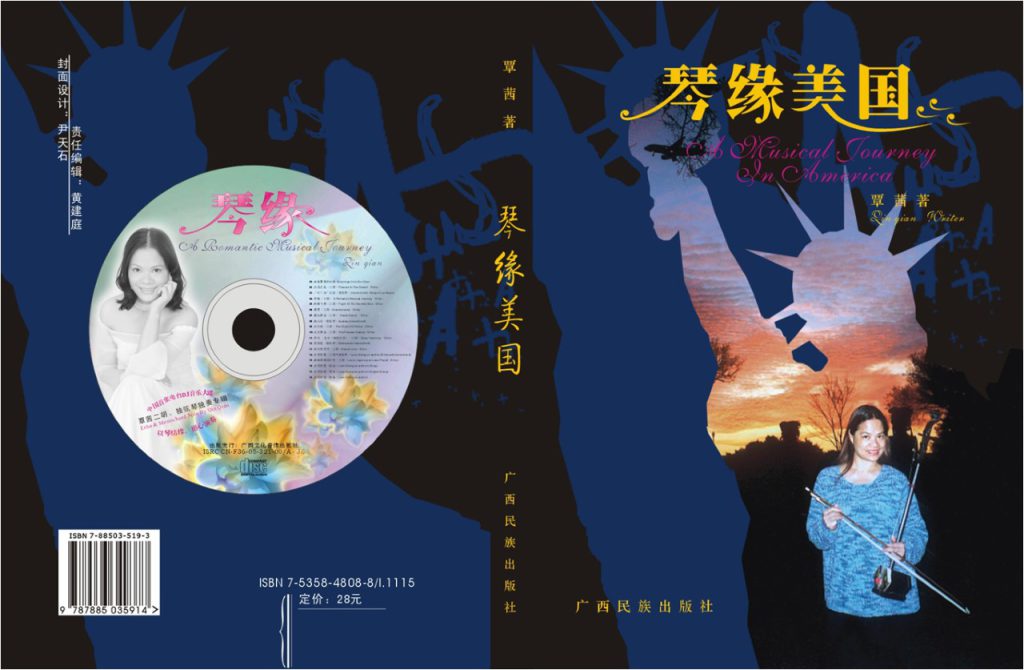
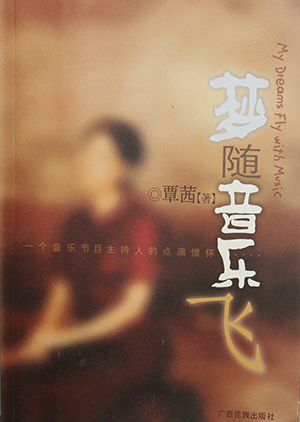
In 2003, she gave a very successful concert in Nanning in which she played the erhu and monochord and was accompanied by the Guangxi Symphony Orchestra. Makes her the first person to give a solo concert on a Chinese radio show host. In 2005, her first CD, “A Romantic Musical Journey,” which featured her work on the erhu and monochord, was released, and she received wide attention from Chinese music lovers.This is the first music record published by a radio host in China, showing Qin Qian’s multi-talented life. She obtained the deputy senior title (Editor-in-Chief) at Guangxi Nanning Radio Station and worked as a music editor and music show host for 19 years.
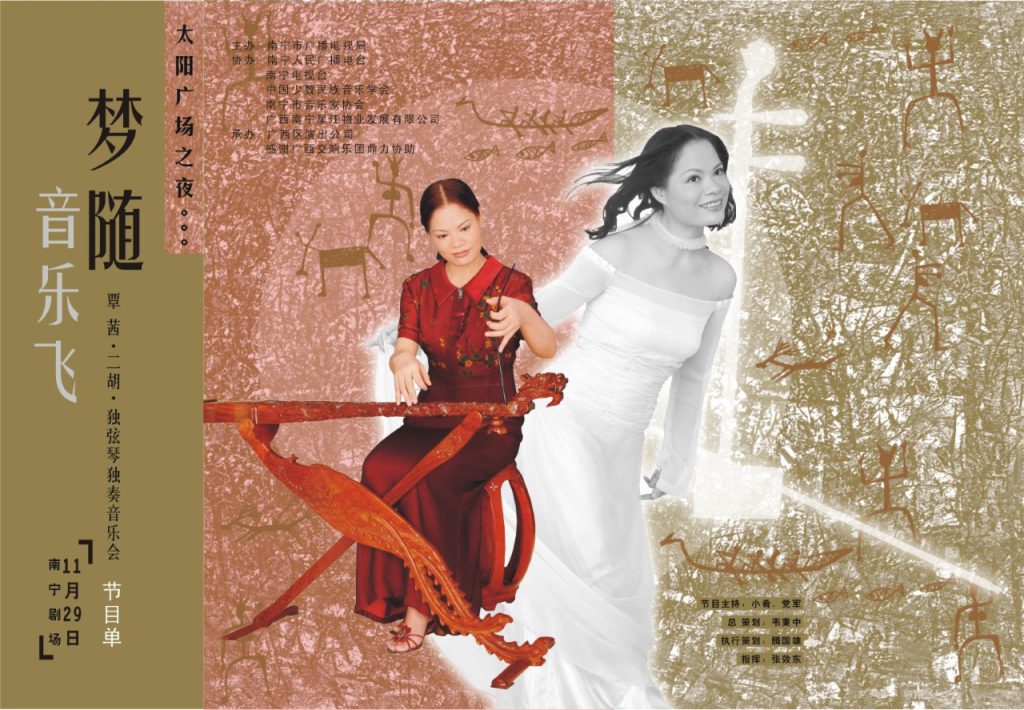
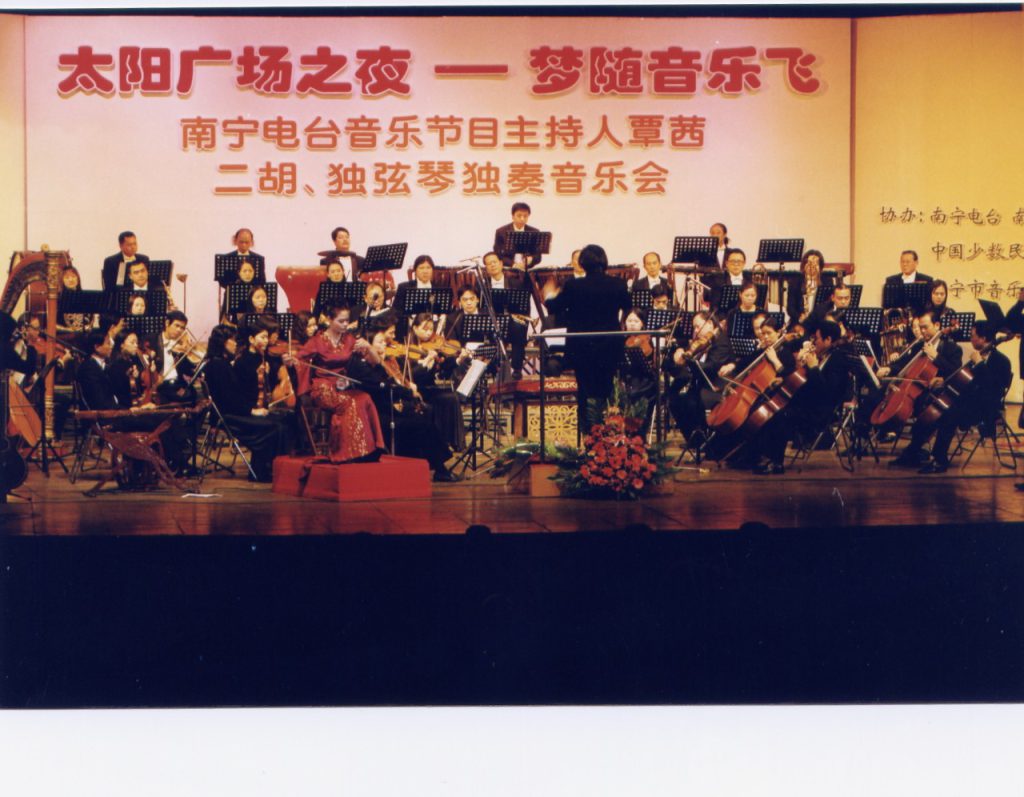
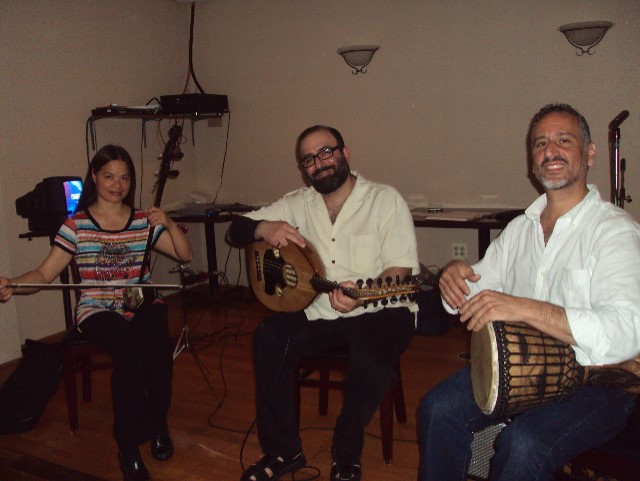
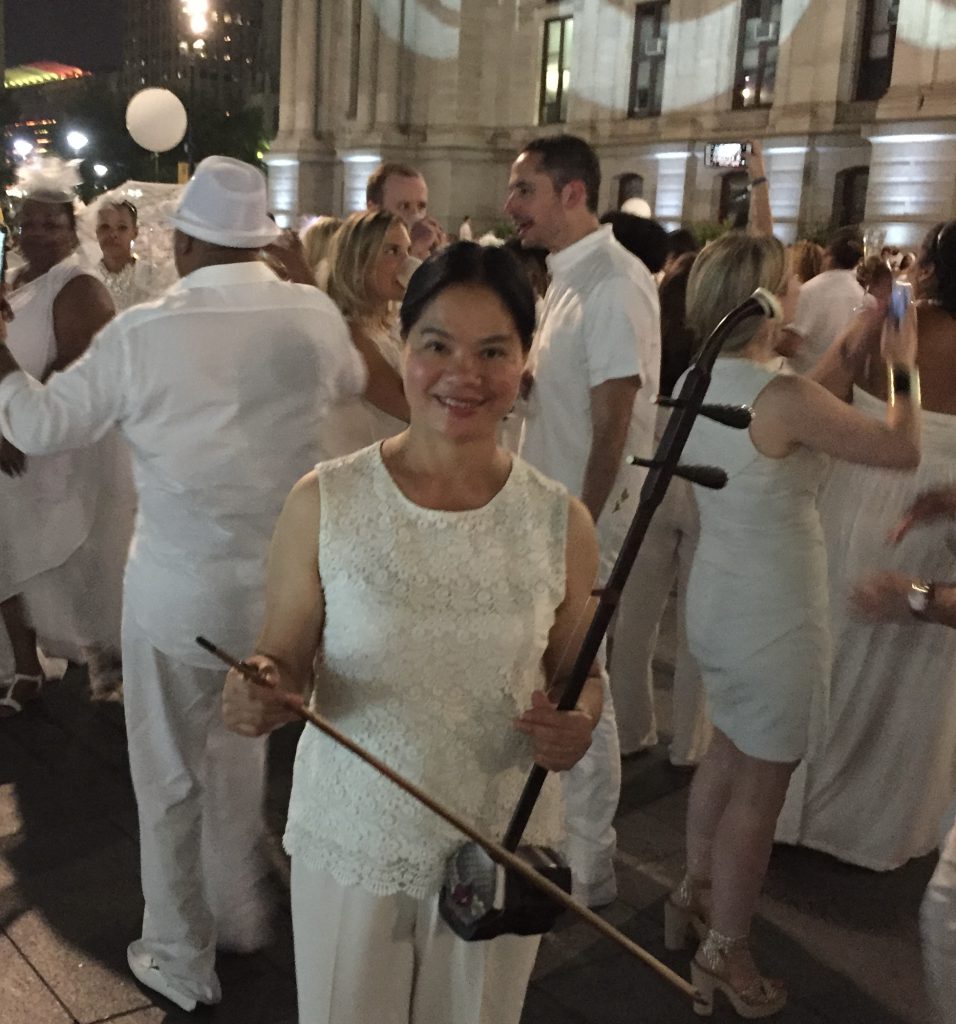
In 2005, Ms. Qin moved to the United States and started promoting traditional Chinese music. The next year, she started teaching erhu at the Ming De Chinese School in Radnor, Pa.

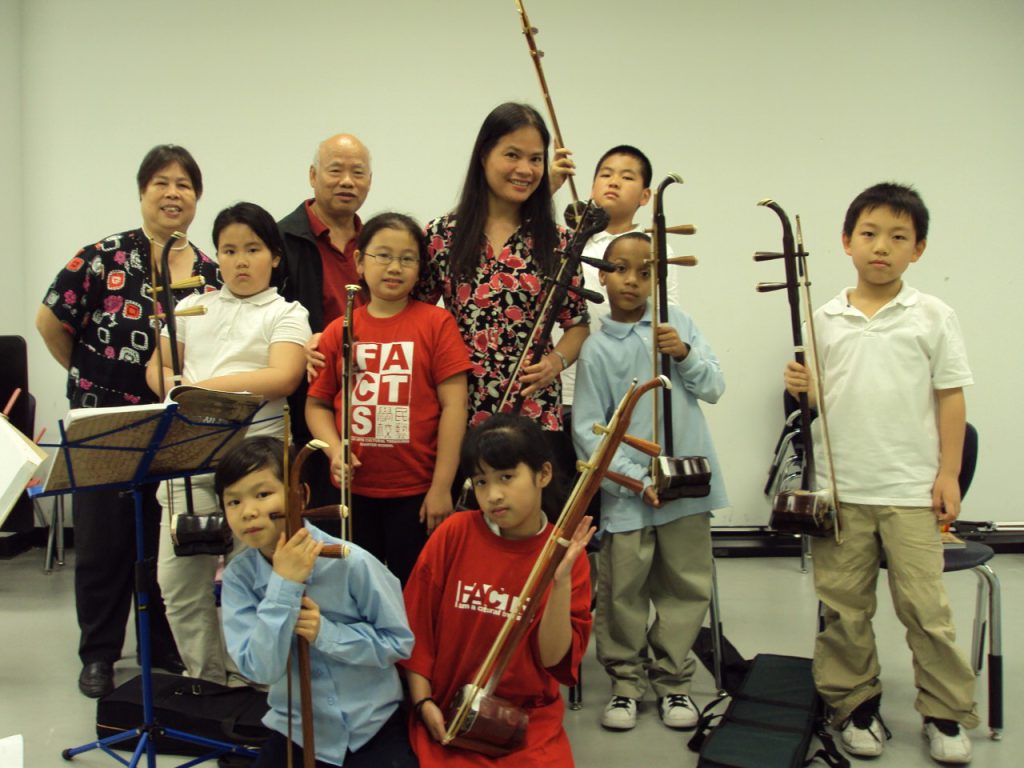
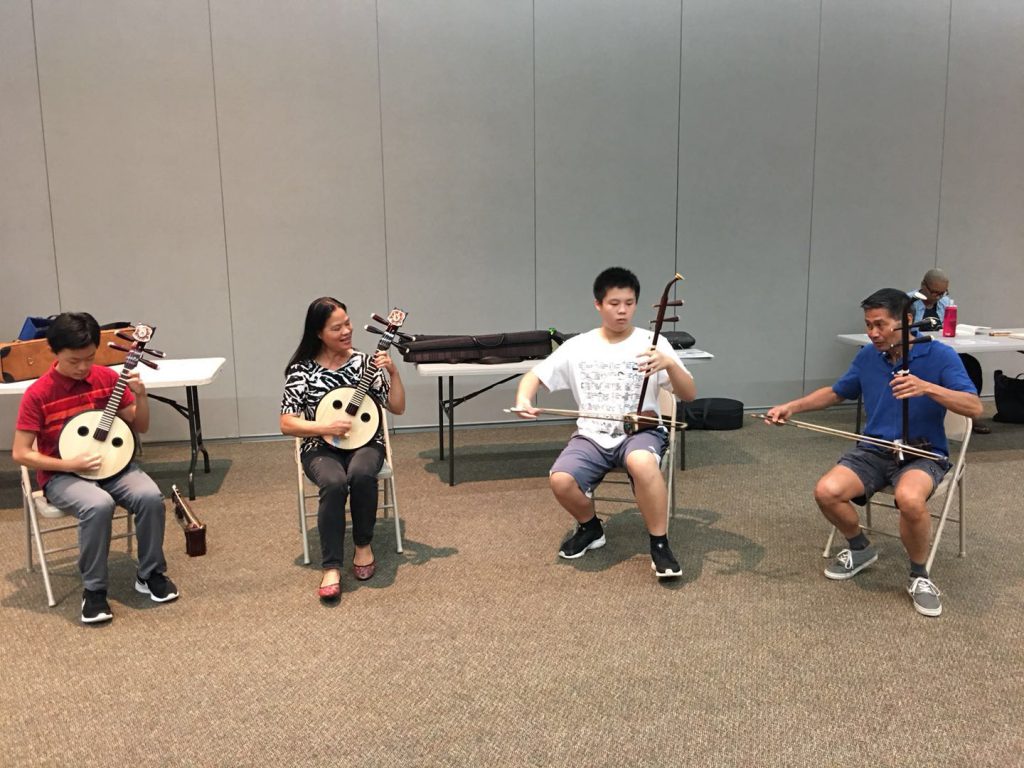
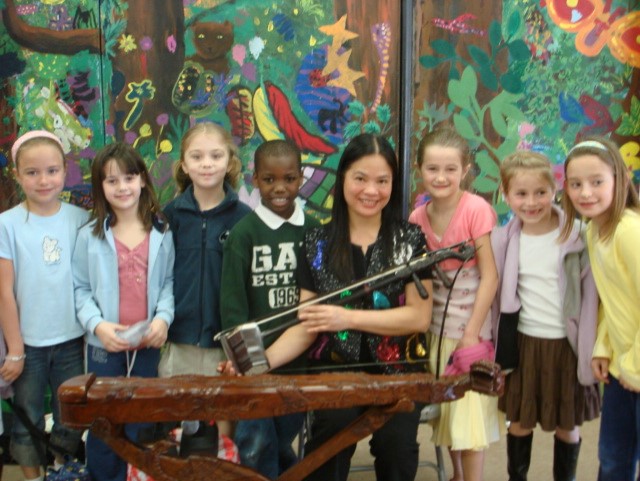
Her private students come from many different backgrounds and ethnic groups, and range in age from 5 to 80. Teaching gives her tremendous satisfaction, and she often performs in concerts with her students. Her musical work has taken her to many places, including Australia, England and Curacao.
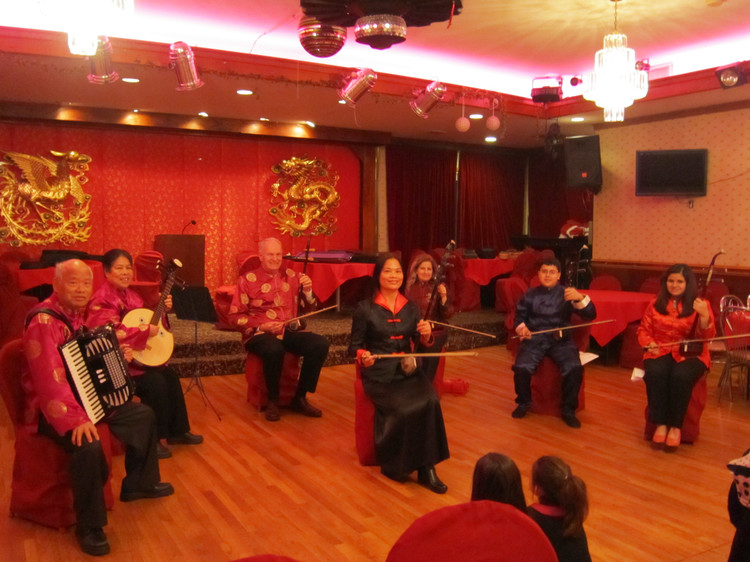

In 2008, Ms. Qin performed in the musical “The Mirror Effect,” playing solo pieces on the erhu and monochord and others with a jazz band. In July 2008, she accompanied the musical group Siris, led by the American singer Michael Maley, in the song “God Bless Sichuan,” which was sung in Chinese and raised money for earthquake relief. The video, onYouku.com, received more than 6 million views in six months, Her erhu playing gave the song a unique Chinese flavor and mood of sadness.
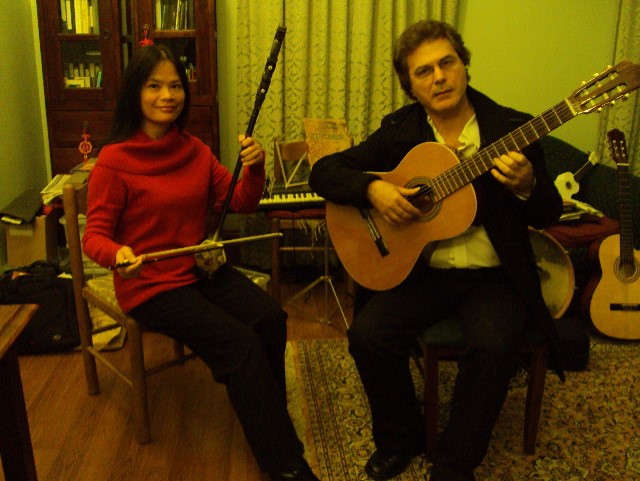
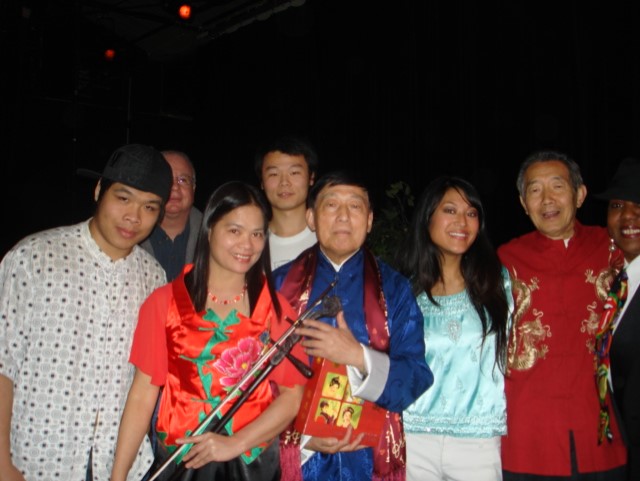
In 2009, Ms. Qin went to Australia and recorded eight songs with the guitarist Vincenzo Andreacchio. Five were traditional Italian tunes, expanding the erhu’s musical territory.
In 2010, she joined a band, the Obsoleets, to learn and play different varieties of American music. In addition, that same year, her student Arthur Zhang, then 15, performed successfully as the featured erhu soloist in a concert devoted to Chinese music. It shows Qin Qian’s extraordinary achievements in erhu performance and teaching
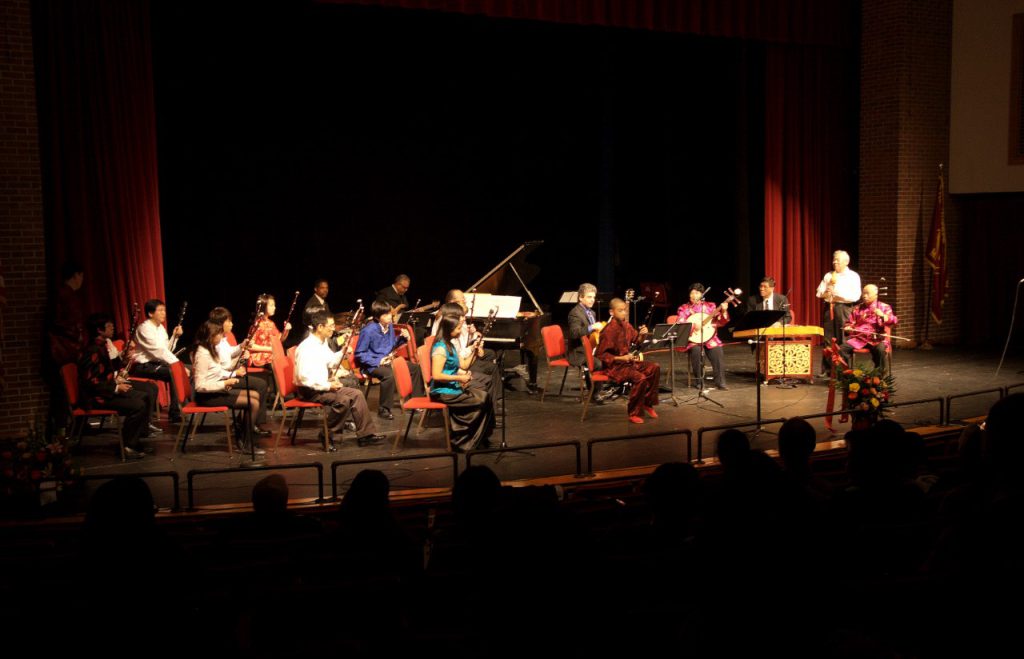
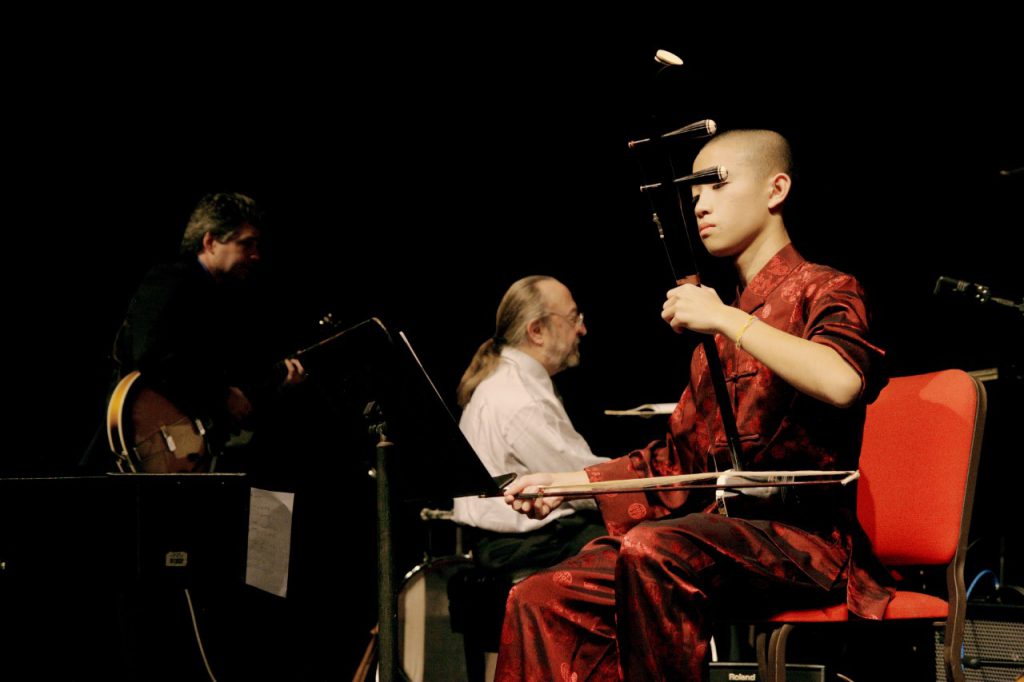
The following year, she gave a successful concert in Philadelphia, “The Emotive Beauty of the Erhu, With Qin Qian”. She was accompanied by harpist Gloria Galante and pianist Gloria Collins.

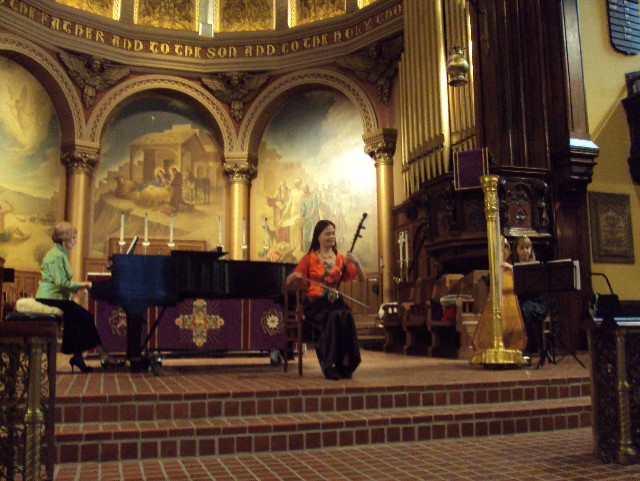
In 2012, her student Arthur Zhang won first prize at the 2012 Princeton University International Chinese Music Competition. Another of Ms. Qin’s students, Sophia Blystra, played the monochord and won second prize. Qin Qian was named outstanding teacher.(In this music festival, eight students of Qin Qian participated in the competition and won different awards.)
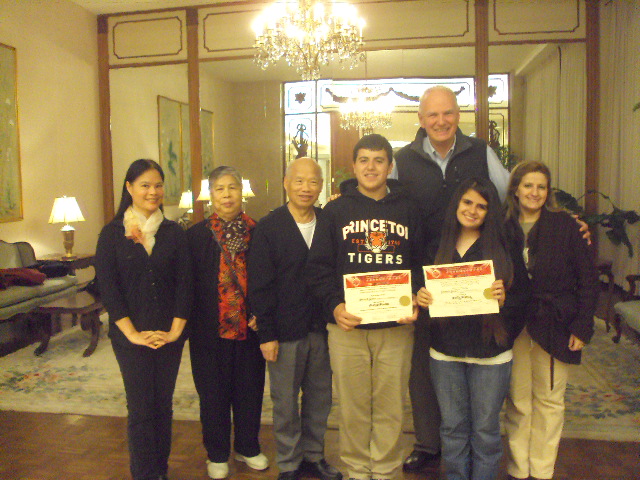
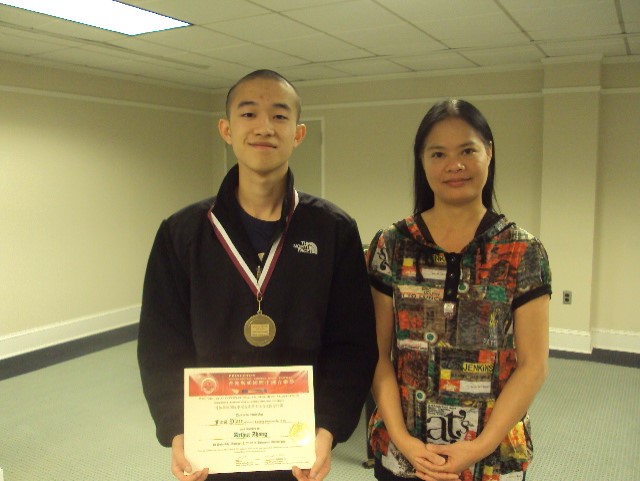
In 2013, Ms. Qin started a program, “The Pentatonic Music of Yang Sheng Qigong,” a simple, relaxing, and easy way to practice qigong, an exercise of the mind, body and spirit. She believes that enjoying music on the five-tone pentatonic scale and practicing qigong every day will provide many health benefits. She integrated Qigong state into her erhu performance, and felt a different kind of wonderful sound!
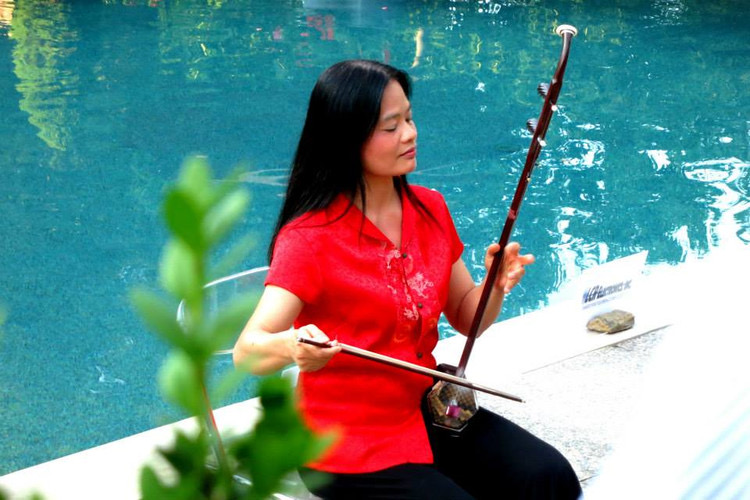
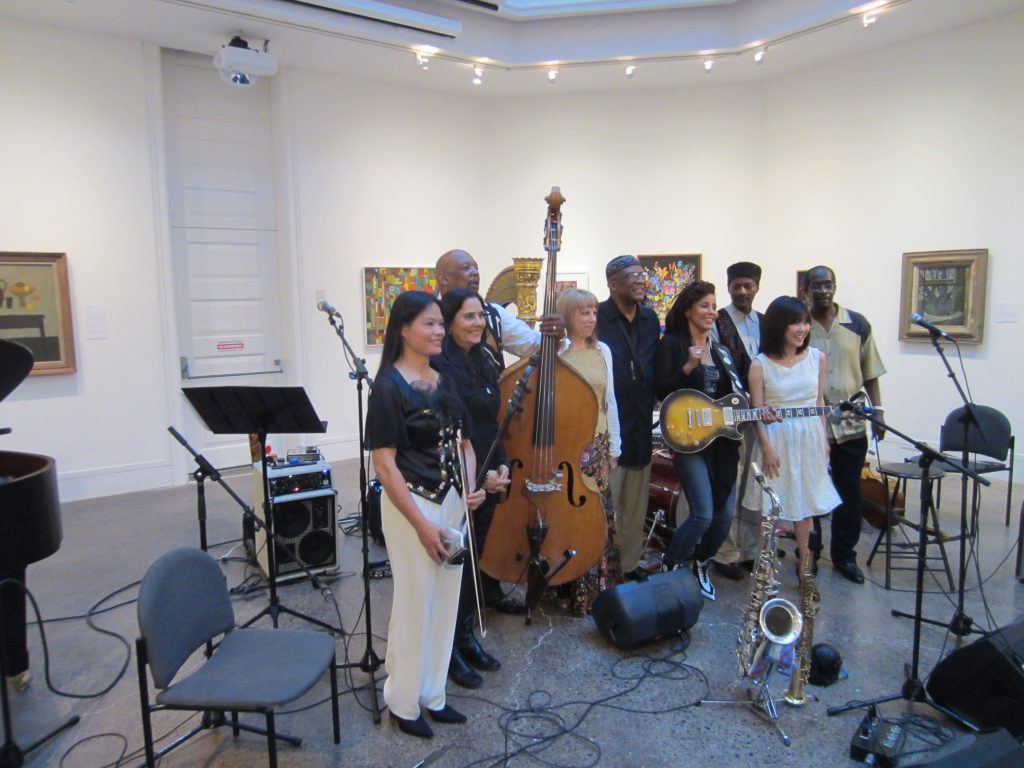
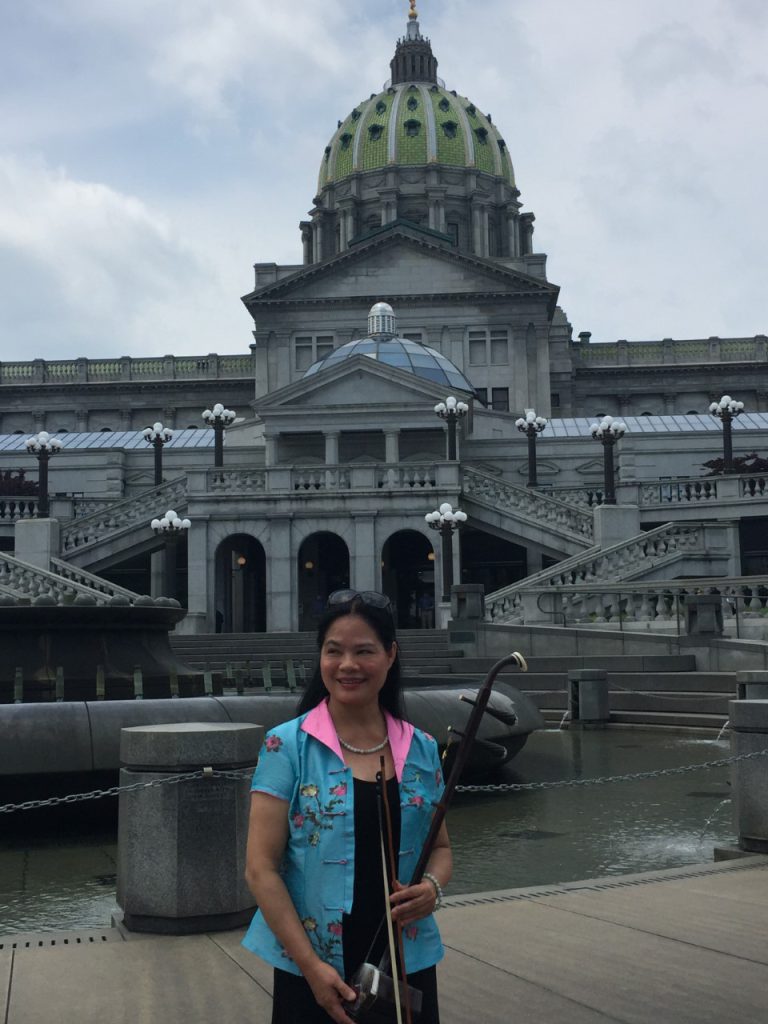

In 2010, she joined a band, the Obsoleets, to learn and play different varieties of American music. In addition, that same year, her student Arthur Zhang, then 15, performed successfully as the featured erhu soloist in a concert devoted to Chinese music. It shows Qin Qian’s extraordinary achievements in erhu performance and teaching
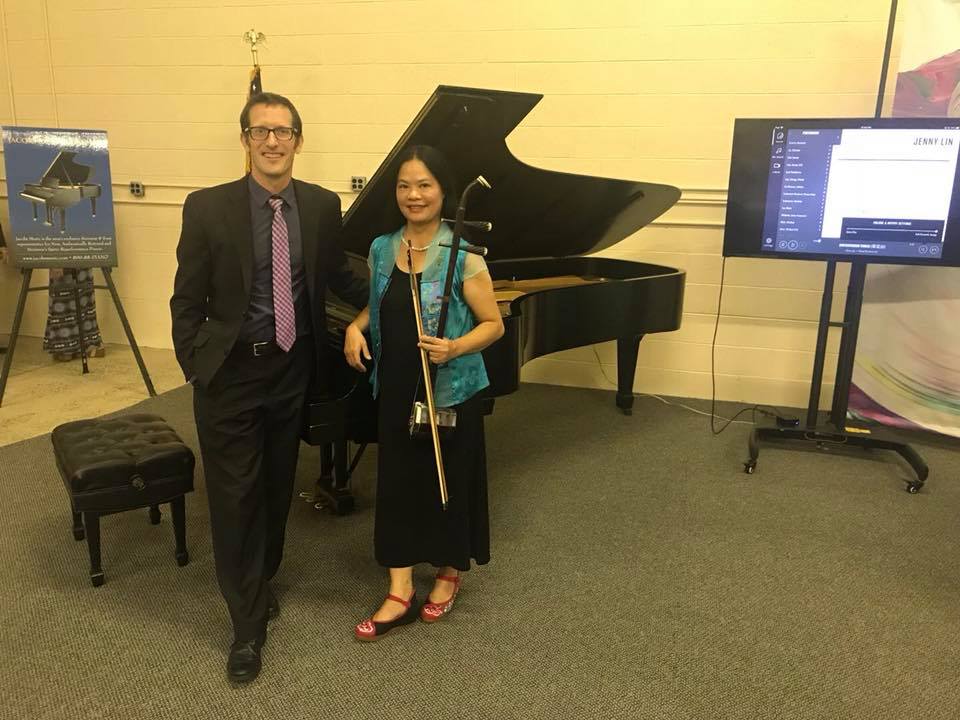
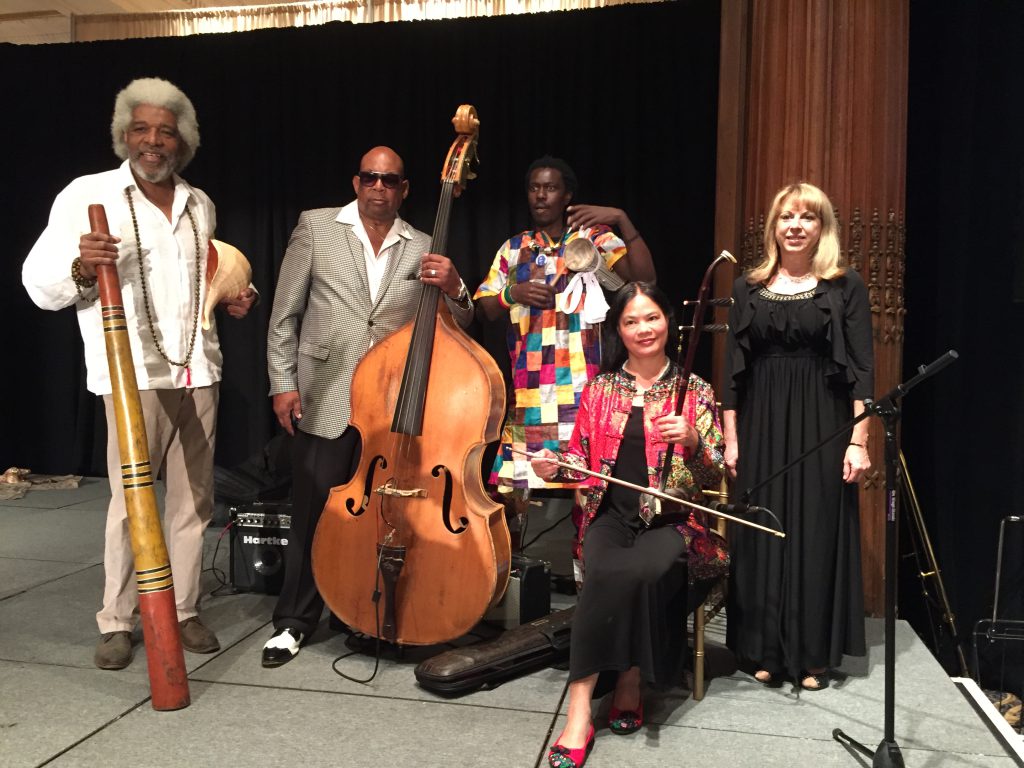
The next year, she held the “Double String and Five-Tone” concert at the Philadelphia Free Library. She played traditional Chinese and Western music with the erhu and introduced music as therapy, using the pentatonic scale for health. Such musical therapy dates back 2,000 years, from the medical book “Huang Di Nei Jing” (“The Emperor’s Inner Canon”).
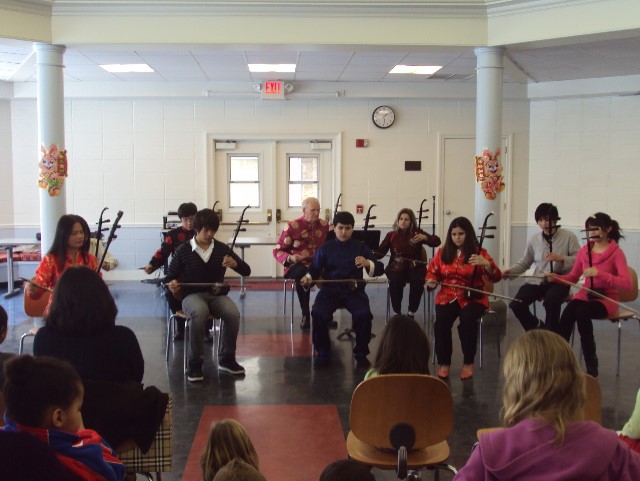

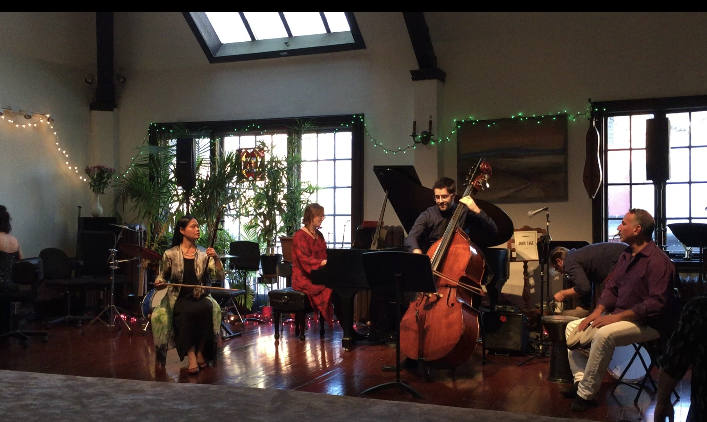

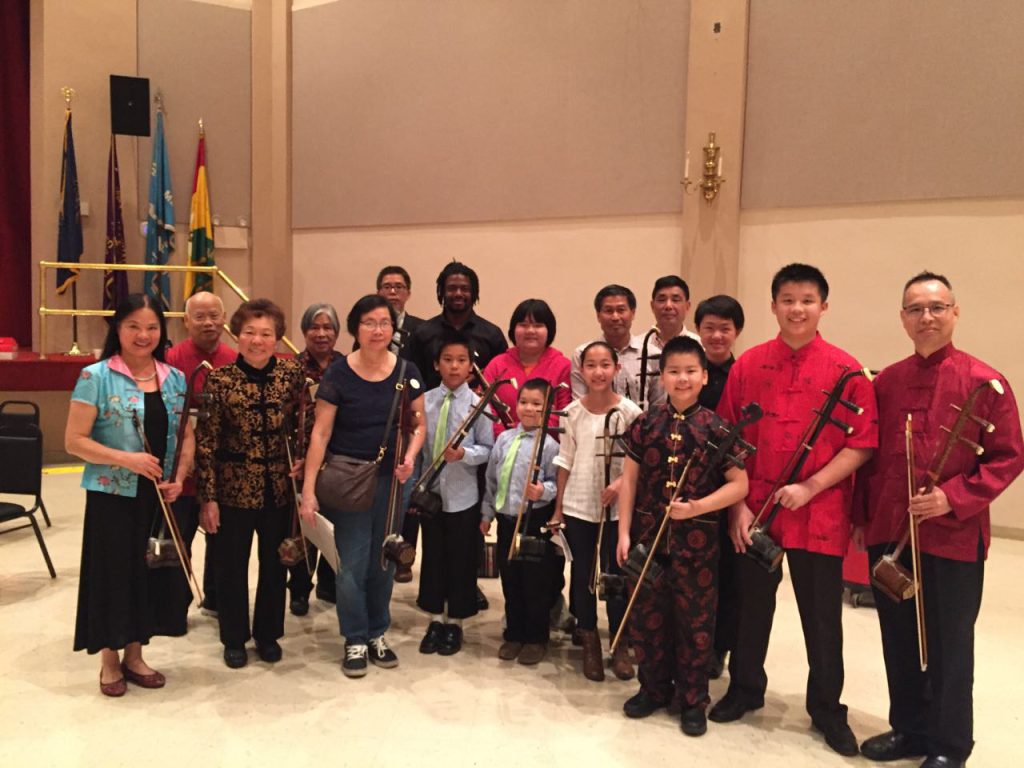


In 2016, with pianist Kathryn Woodard, percussionist Joseph Tayoun, and bassist Brent Edmondson, she appeared twice at composer Andrea Clearfield’s salon. The repertoire included famous erhu solos in “The River of Sorrow,” “The Grapes Are Ripe,” and “The Charm of the Tianshan Mountains.” The salon has been continuing for 30 years and is an important part of the music scene in Philadelphia. In September, Qin Qian and harpist Gloria Galante held a concert at the West Chester University of Pennsylvania, bringing the audience an
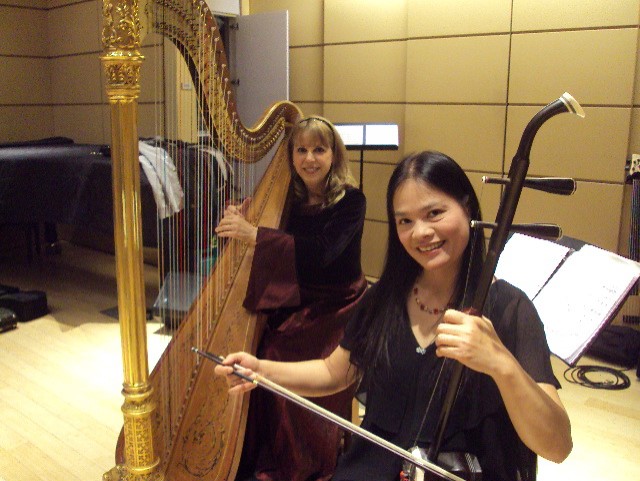
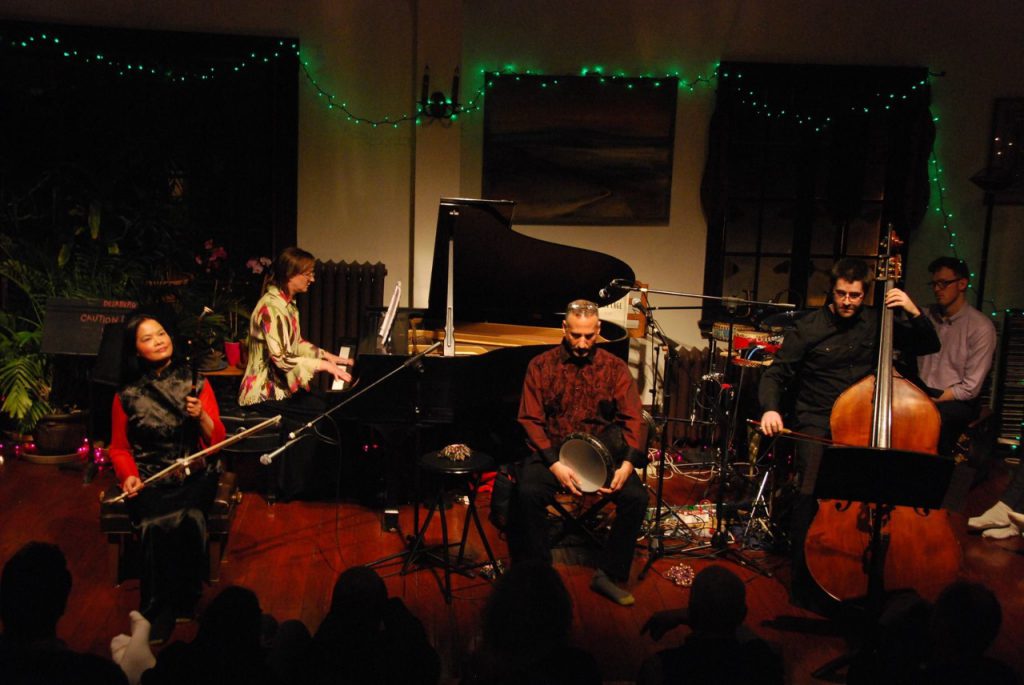
In 2017, Ms. Qin played the erhu with Danish cellist Steve Kramer and American pianist Lance Wiseman to premiere ”Mountain Stream,” a composition by Ms. Qin, at St. Joseph’s University in Philadelphia. In addition, her student Kelvin Wang won the gold medal in the “Super Baby” competition organized by China Central Television and others.
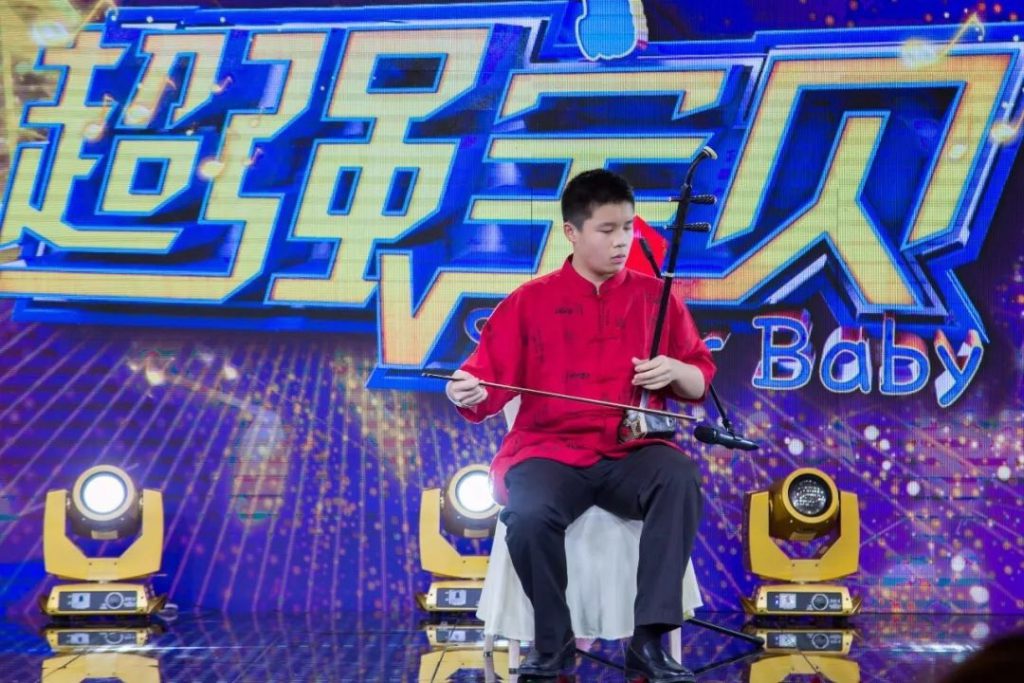
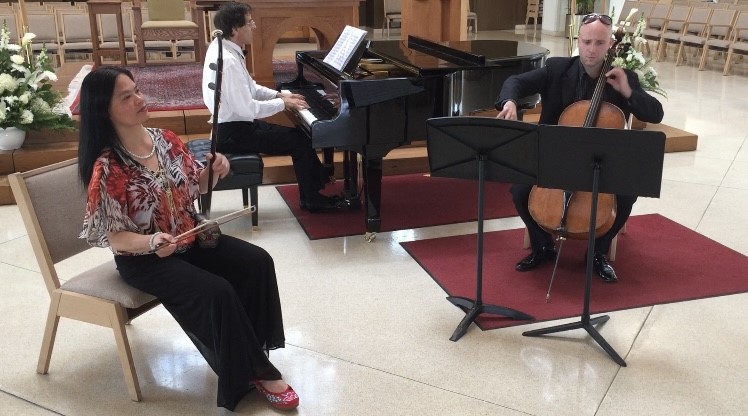
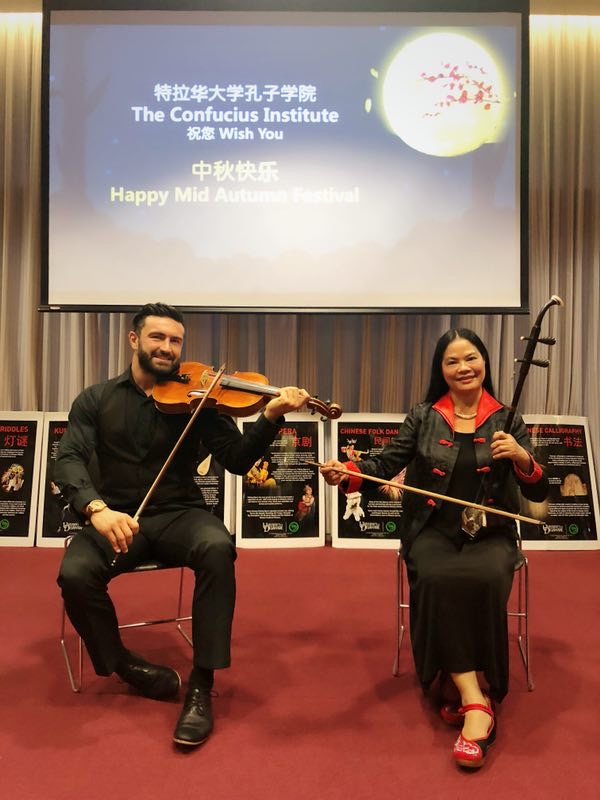
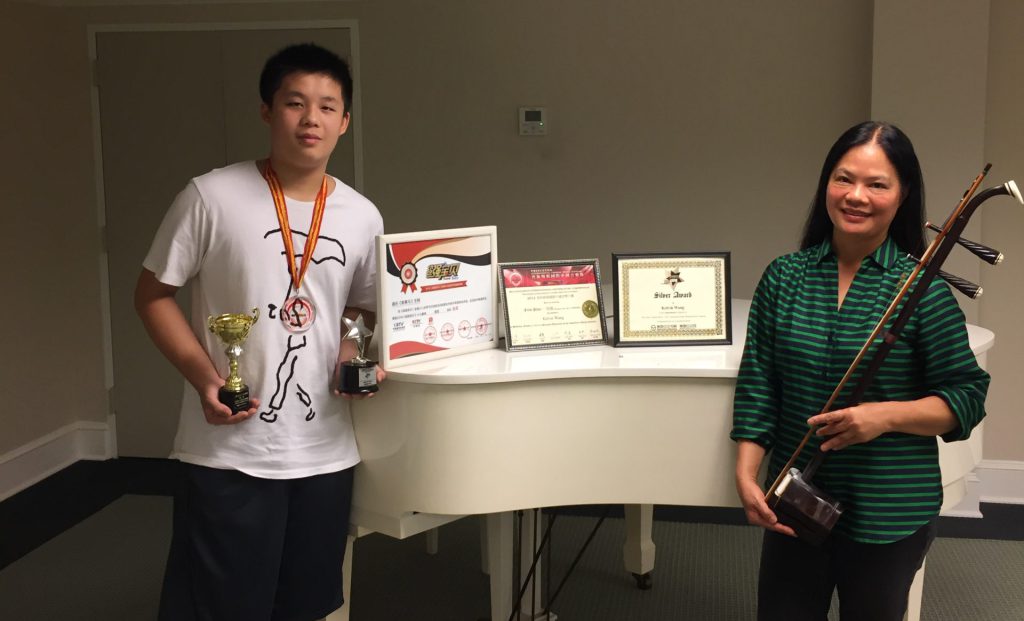
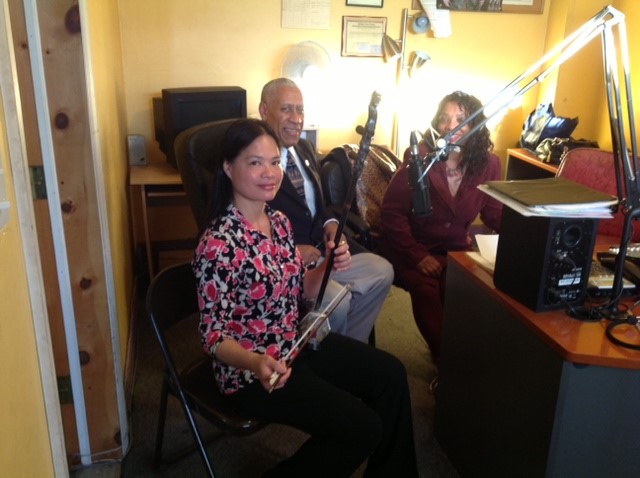
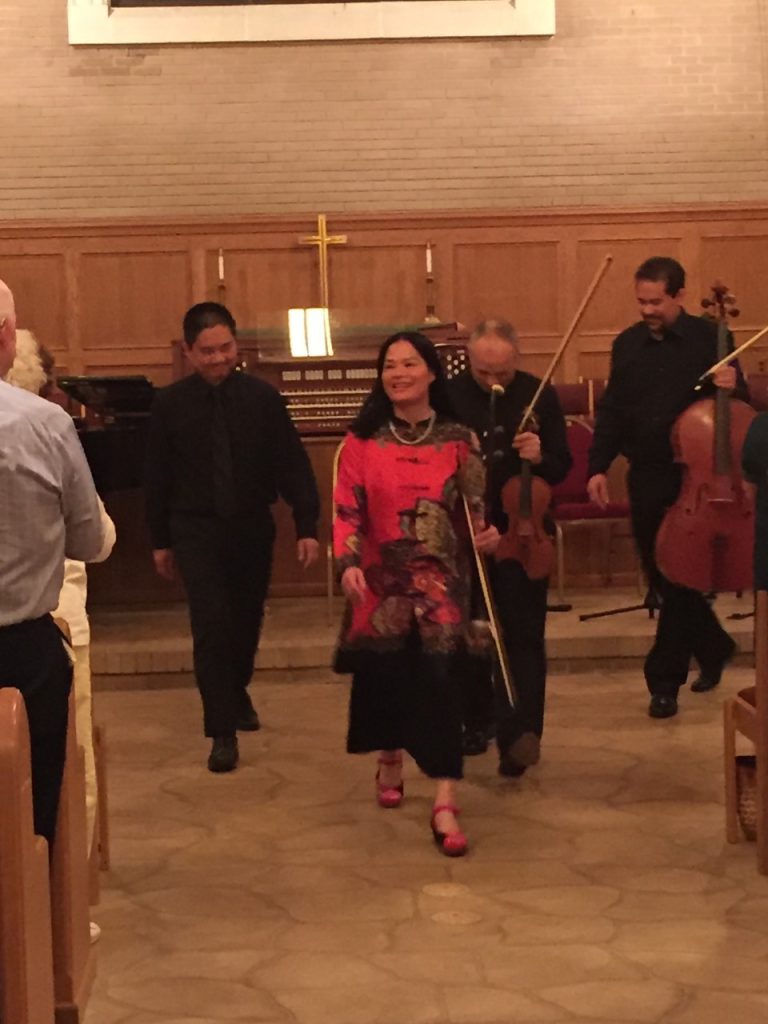
The following year, Ms. Qin participated in the Port City Music Festival in Wilmington, N.C. She teamed with violinist Luigi Mazzocchi, cellist Stephen Framil, and pianist Daniel Lau in a concert of Chinese and Western music. With Russian violinist Sasha Ki(Alexandr Kislitsyn), she also gave a special performance at the Mid-Autumn Evening Party at the University of Delaware. She also participated in famous Chinese composer Wang Liping’s global stop in Philadelphia. Her performance of “A Windy, Rainy Evening by the Autumn Window,” with guzheng player Wang Junling, was well-received.
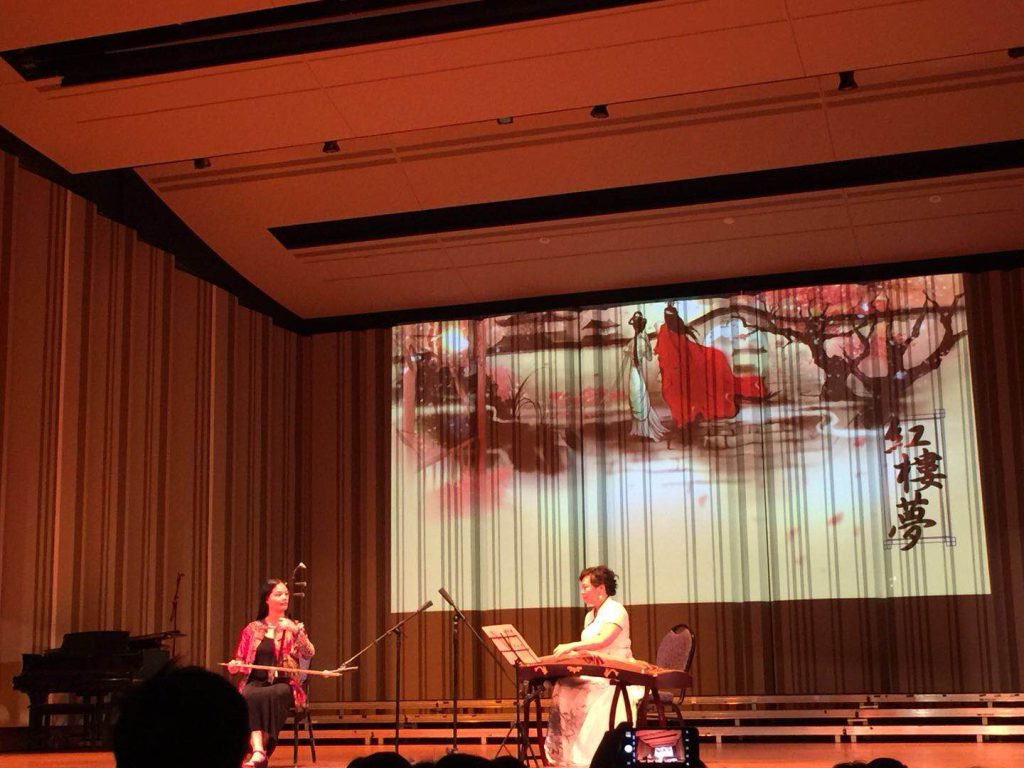
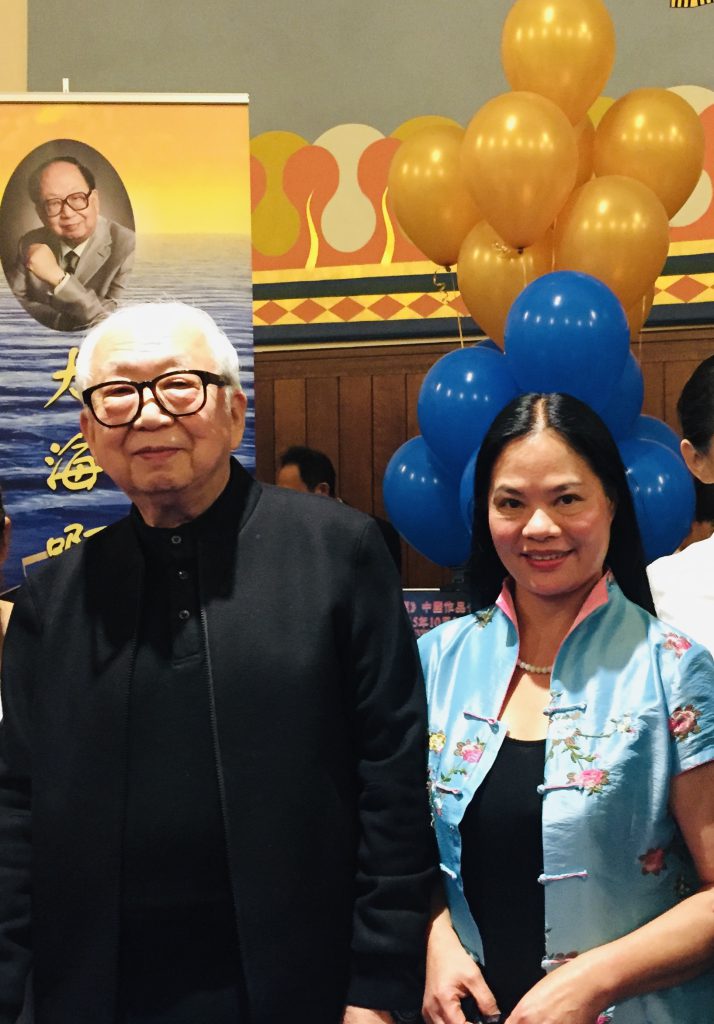
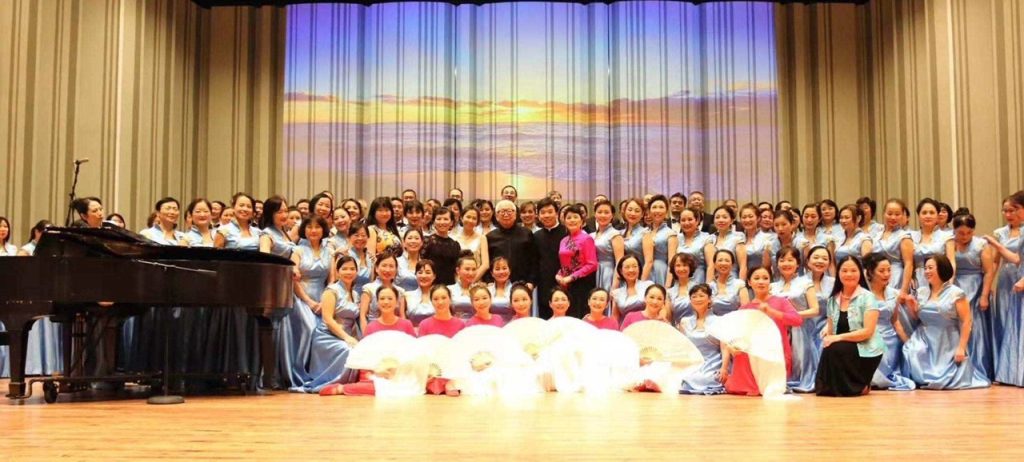
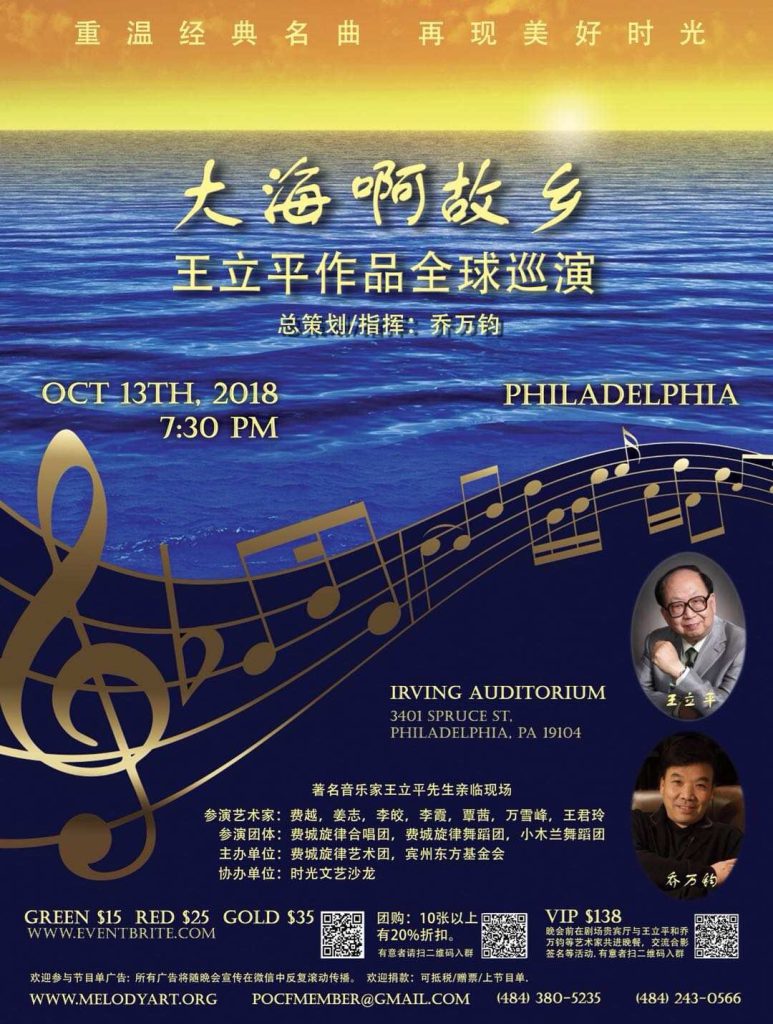
September 2018, the Philadelphia Inquirer and Daily News published a featured article by Bethany Ao, entitled “Notes Of Old—This erhu specialist is working to make Chinese music more visible in Philly”, centering on Ms. Qin. The article explored the spread of the erhu and Chinese music in the United States over the years. Qin Qian’s student Kelvin Wang won the gold medal in New York’s “Teen’s Talent Show,” which was organized by American Chinese TV. October 2018, Ms. Qin was a guest instructor and performer for an international music class at the world-famous Curtis Institute of Music in Philadelphia. She introduced Chinese music and played the erhu for the students, which made these talented people feel the infinite charm of Chinese music!
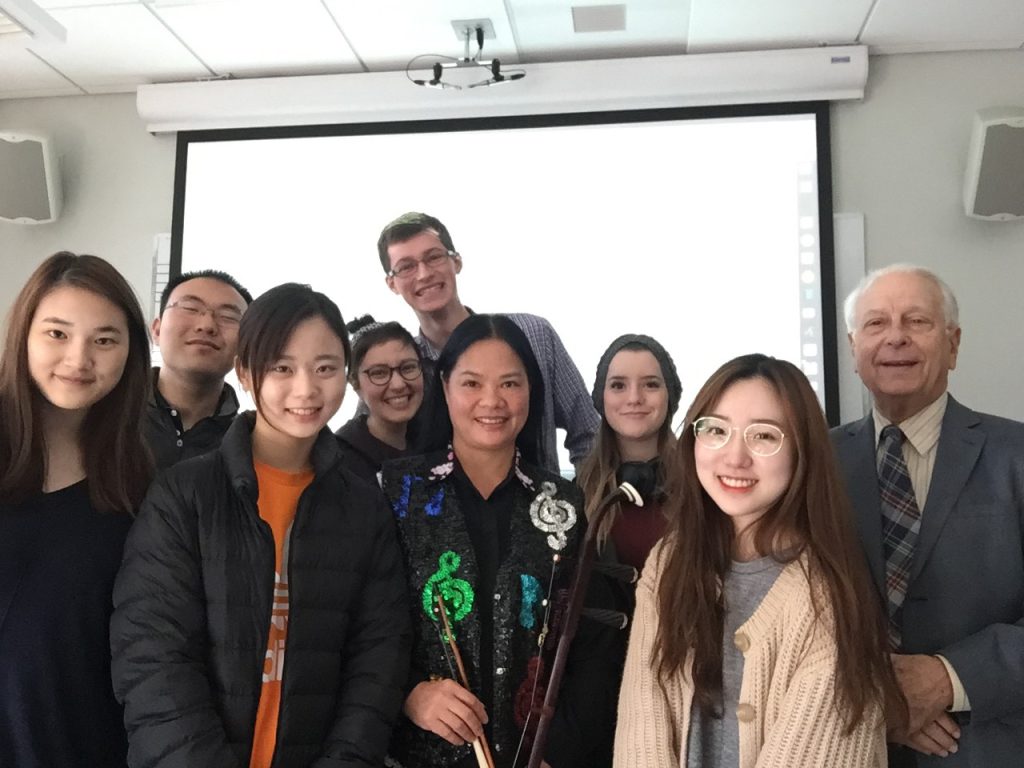
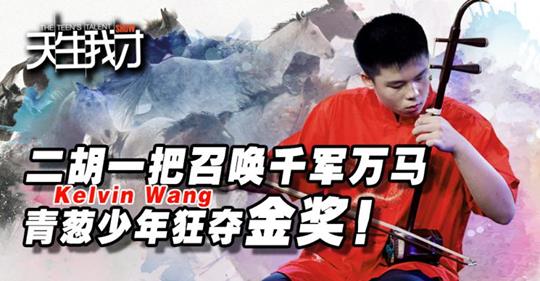

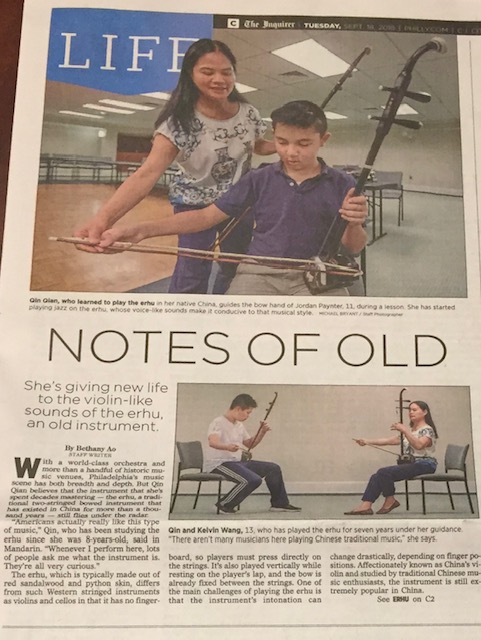


In 2019, Qin Qian was invited by the Philadelphia Museum of Art to plan and perform a concert called: “Pentatonic Tones from China ” with erhu and monochord in the museum’s reception hall of the Zhao Gongfu. (from the 16th century) The concert title was inspired by the reception hall’s five characters of blessing. It symbolizes the five blessings that have descended upon the house. and It is a perfect match with the five tones around the beam ! Qin Qian’s parents also performed with her on the stage as guests, they are playing the zhong ruan and xiao ruan, and percussion. The band members who participated in the performance also included: harpist Gloria Galante, violinist Sasha Ki, harpsichordist Benjamin Katz, this Chinese-Western band played traditional Chinese songs based on the pentatonic scale, which was well received by the audience. Praise!
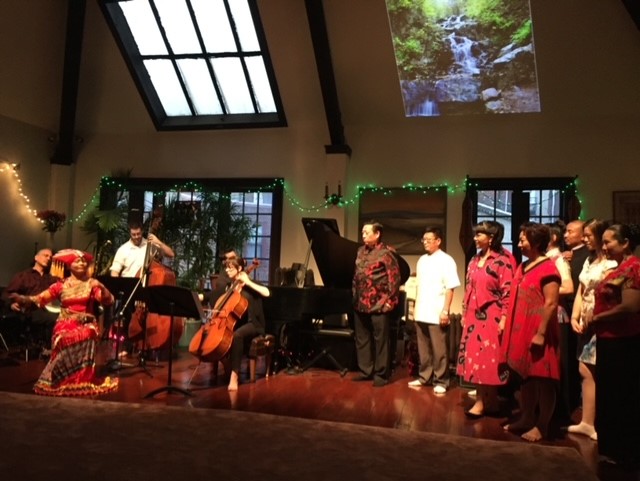
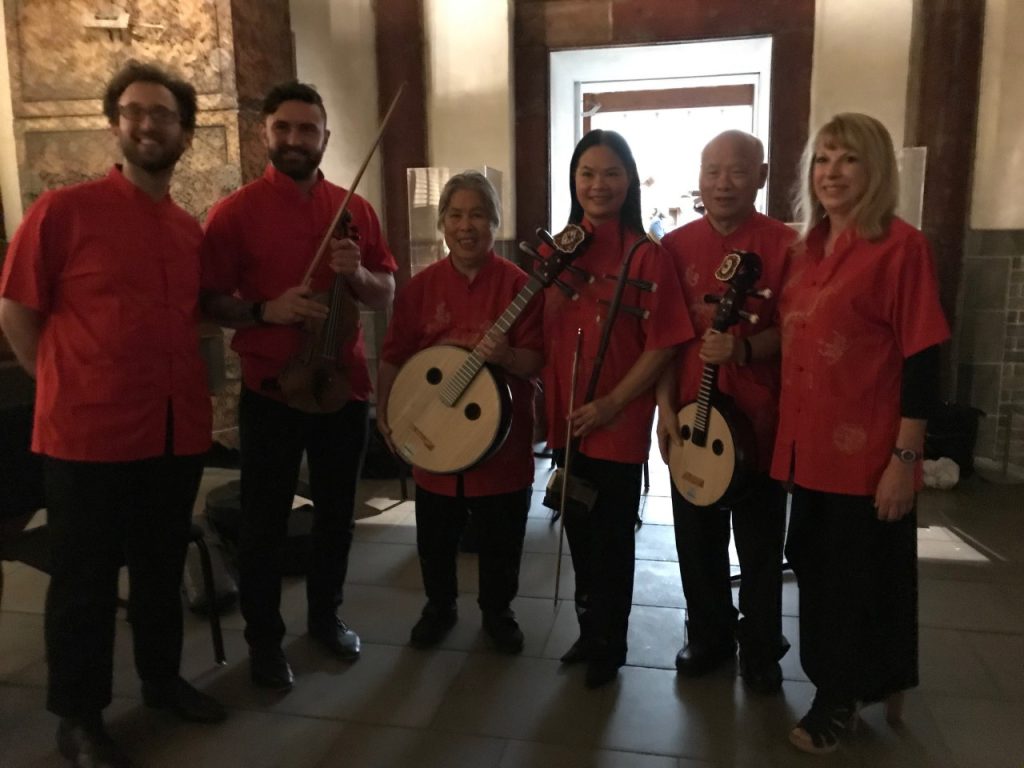
In 2020, Qin Qian played the erhu for a movie “The Laundry on the Corner”, director Tetsuki ljichi and composer Adam Vidiksis asked her to improvise, and also played the work from French composer Joseph-Maurice Ravel “ Pavane pour une Infante défunte”(Pavane For A Dead Princess) , the melancholy tone of the erhu played a role in creating the sorrowful atmosphere in this film.
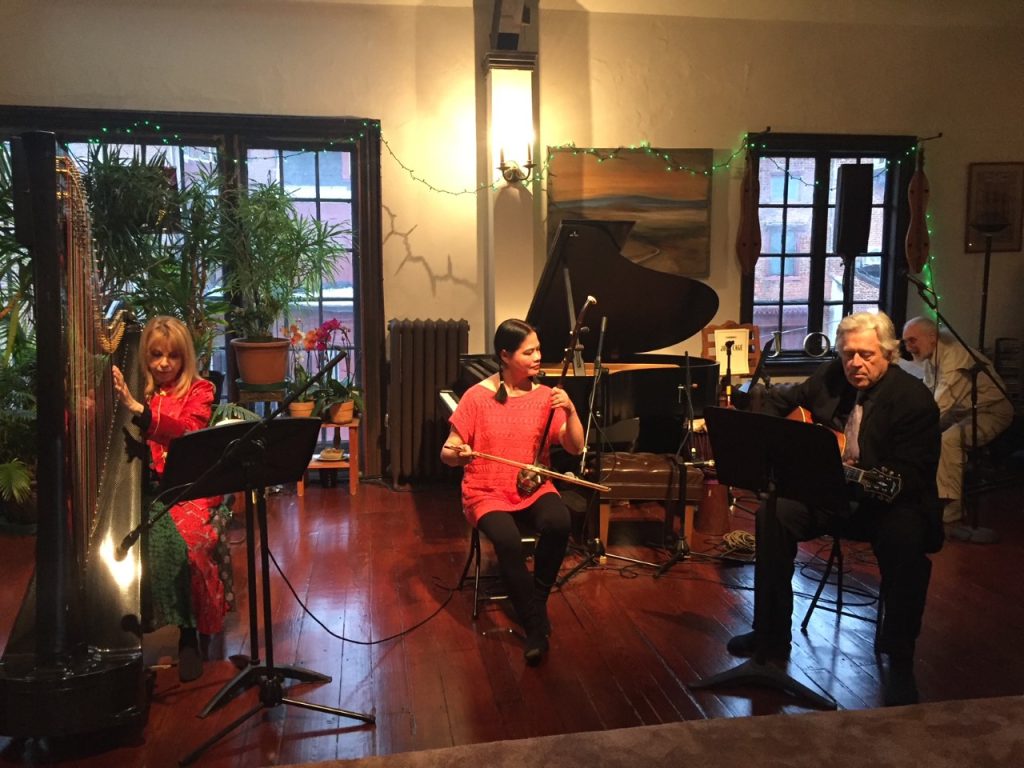
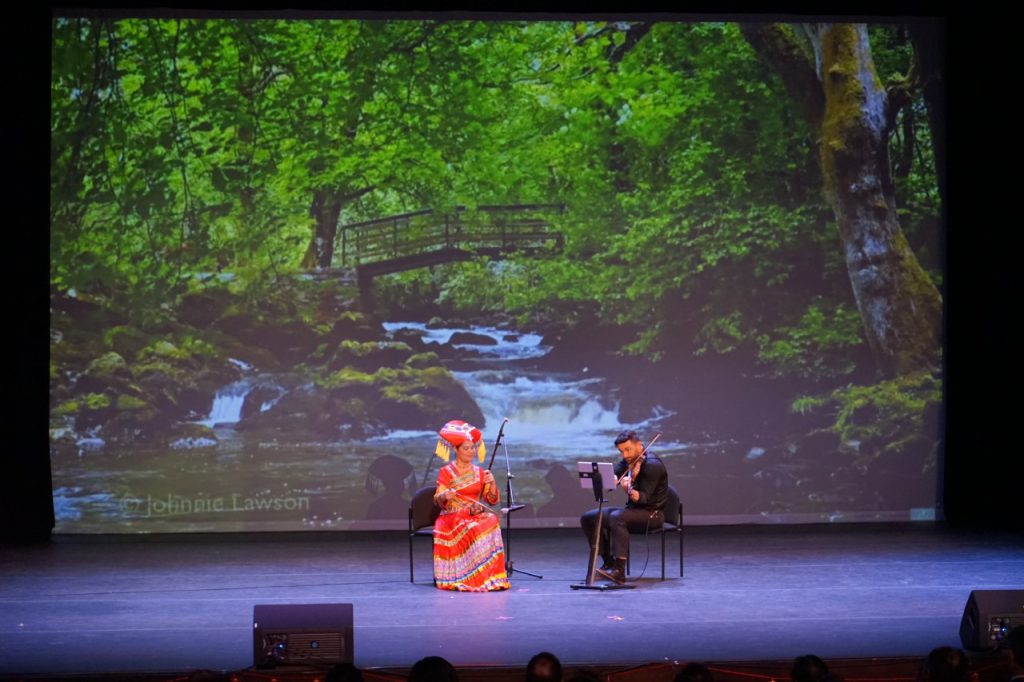
In 2021, due the COVID-19, Qin Qian began to teach erhu and ruan online. College students from Swarthmore continued to follow Qin Qian in online classes. The prospect of online teaching is promising.
In 2022, Qin Qian was invited to participate in one of WaWa’s series of activities to celebrate the Independence Day of the United States. The theme of the Philadelphia Electric Power Company’s special sponsorship was: “PECO Go 4th & Learn: A Cultural Journey”.Qin Qian organized a performance group of nearly 50 people. Her students and some of the guests and the Philadelphia “Friends senior Care Center’s chorus and band” participated in the performance.
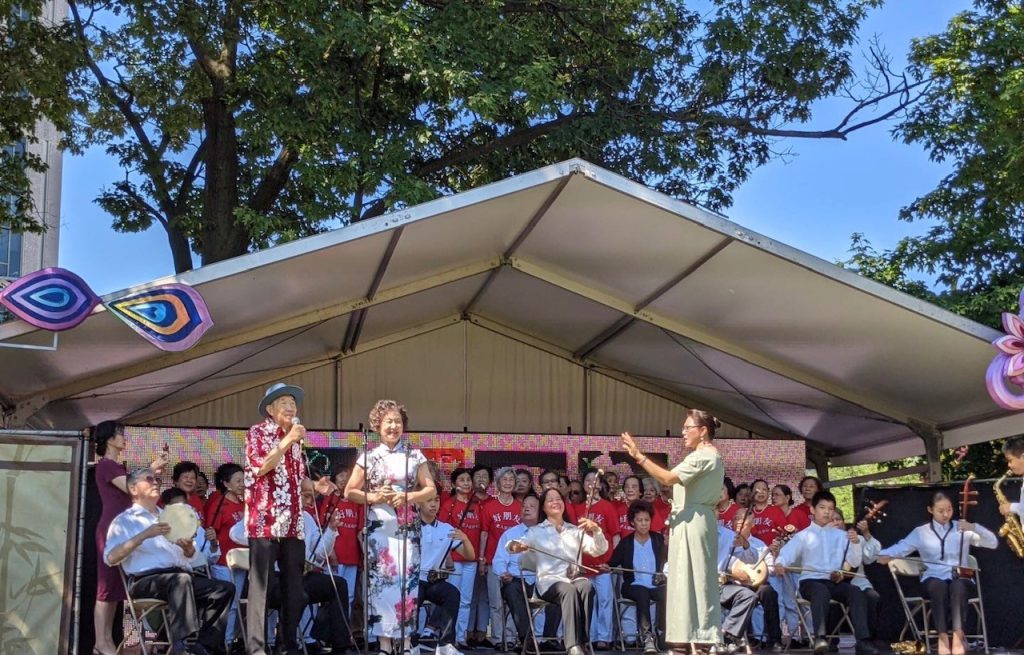
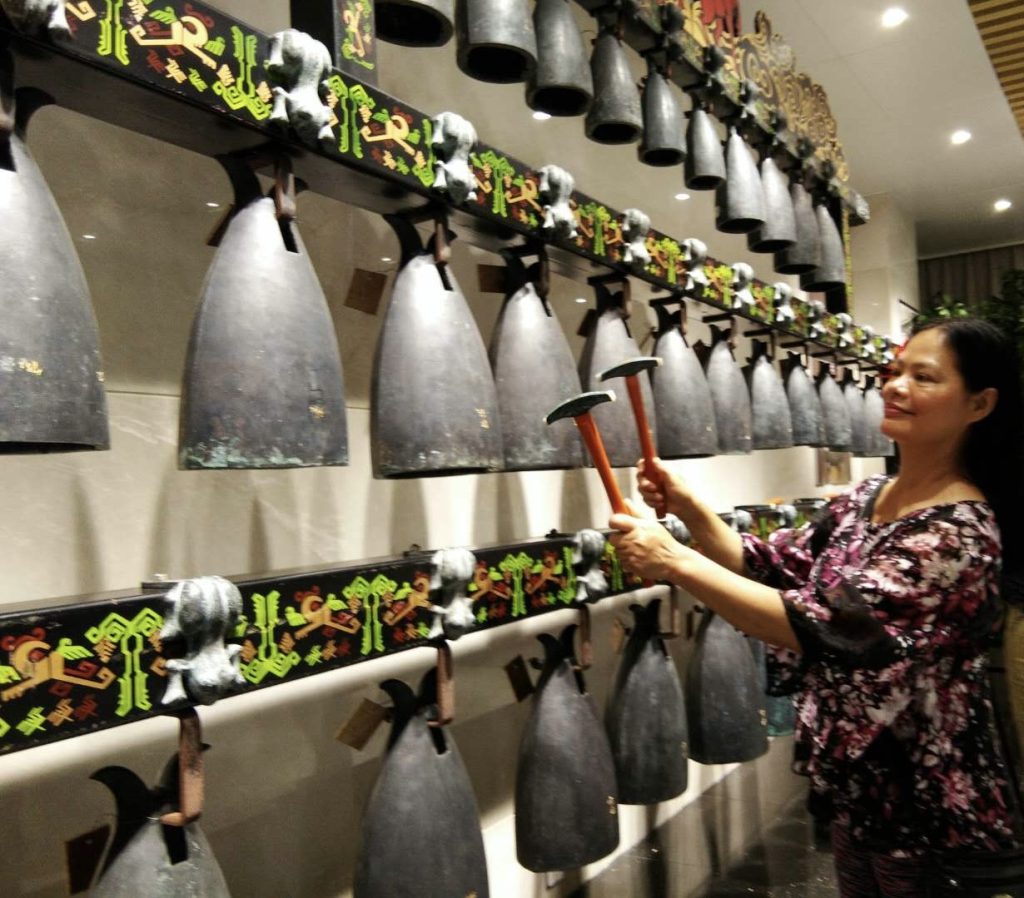
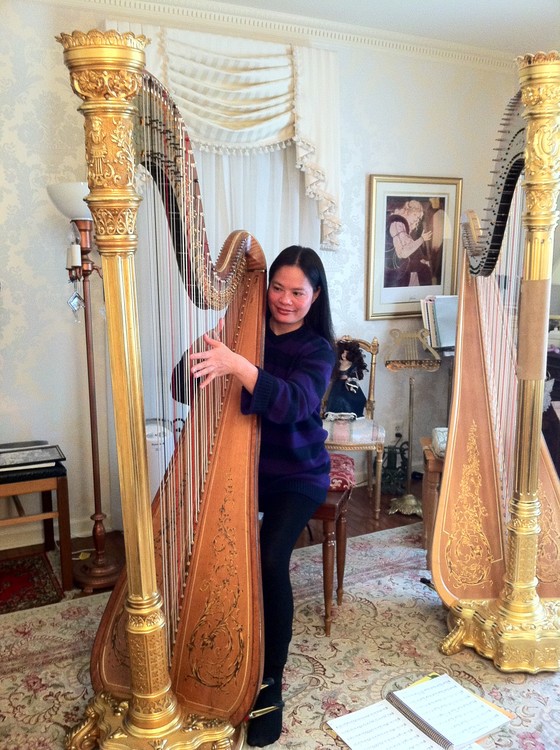
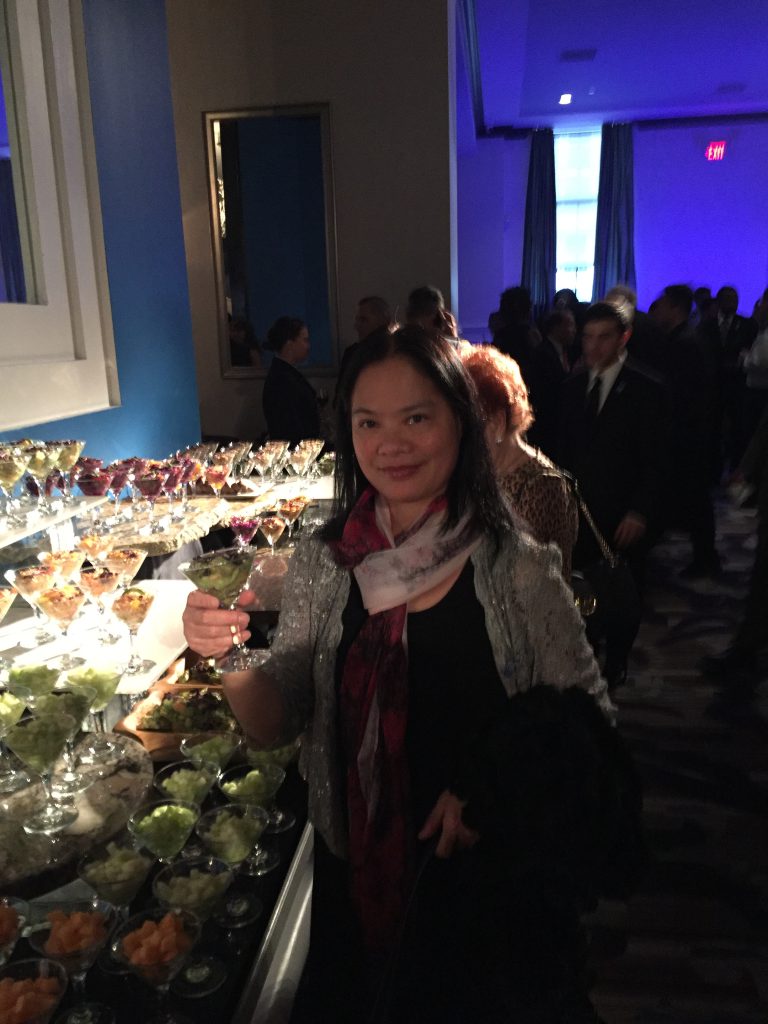
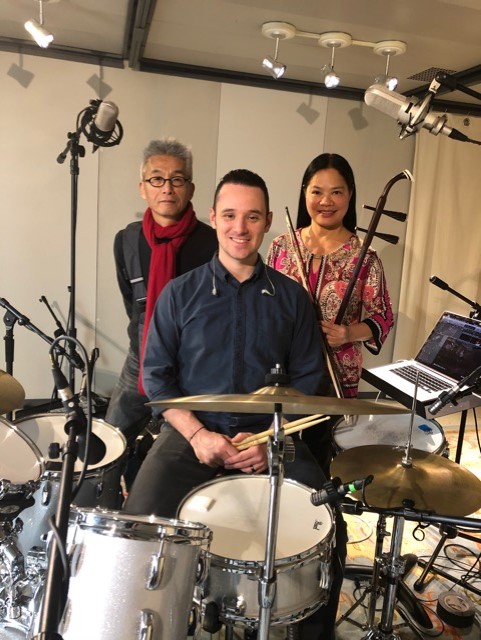
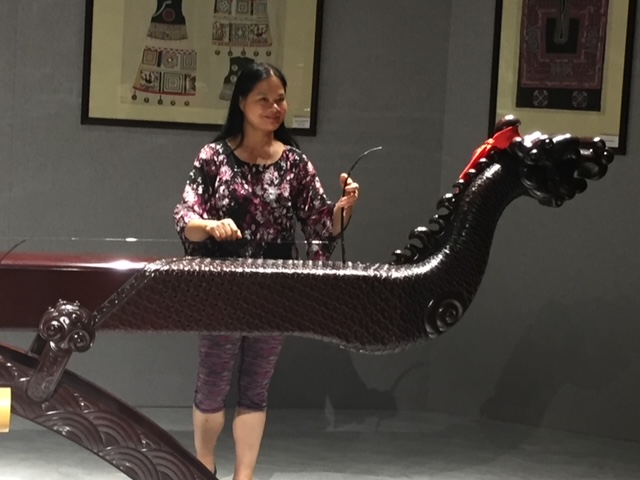
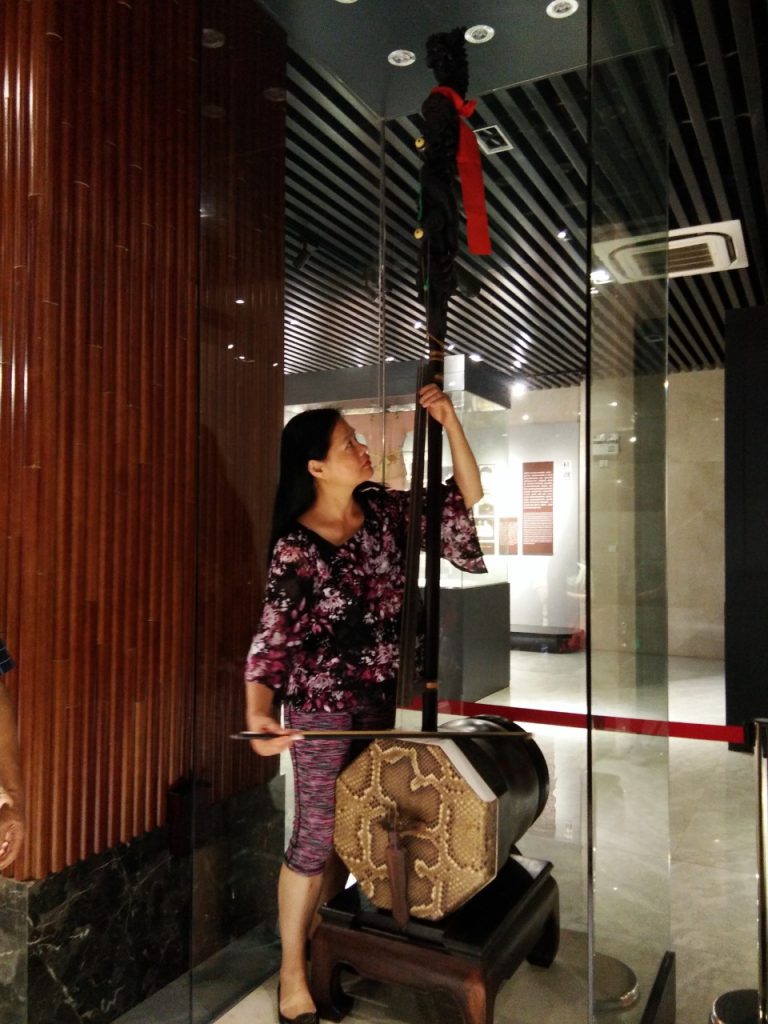
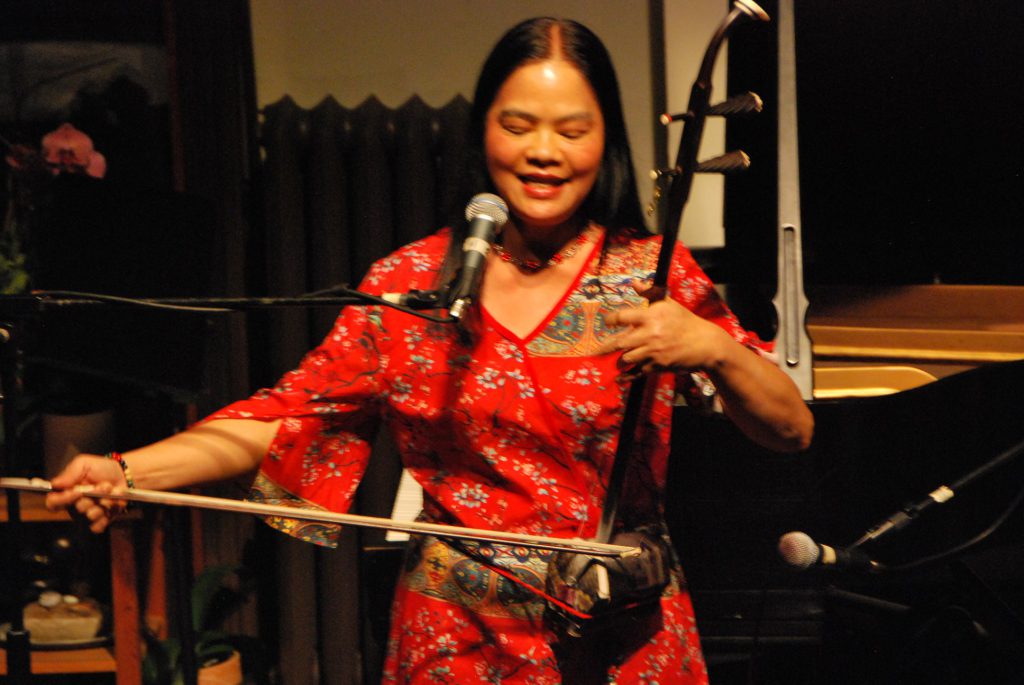
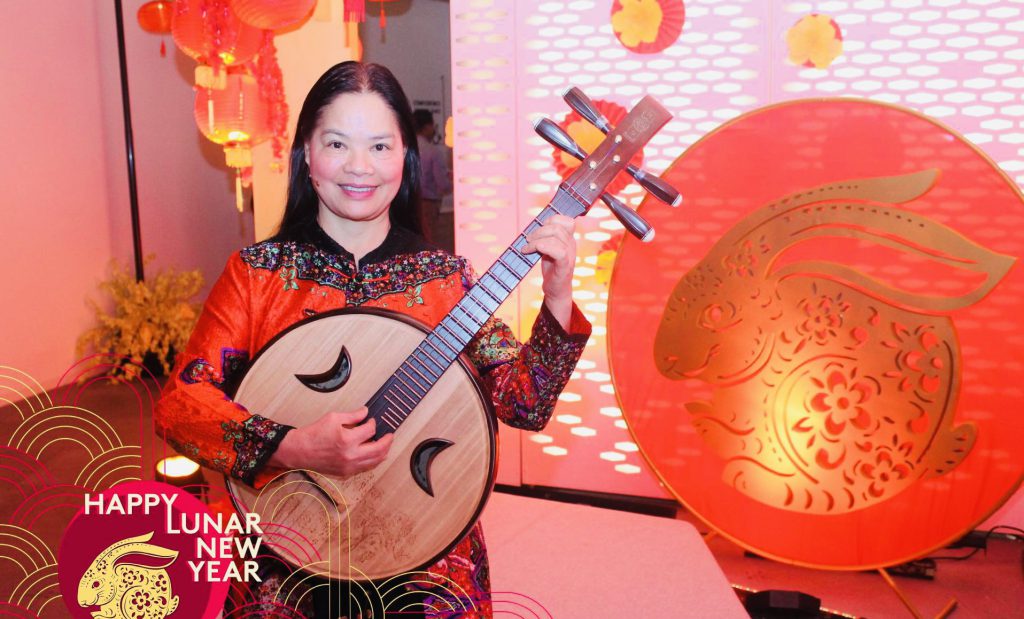
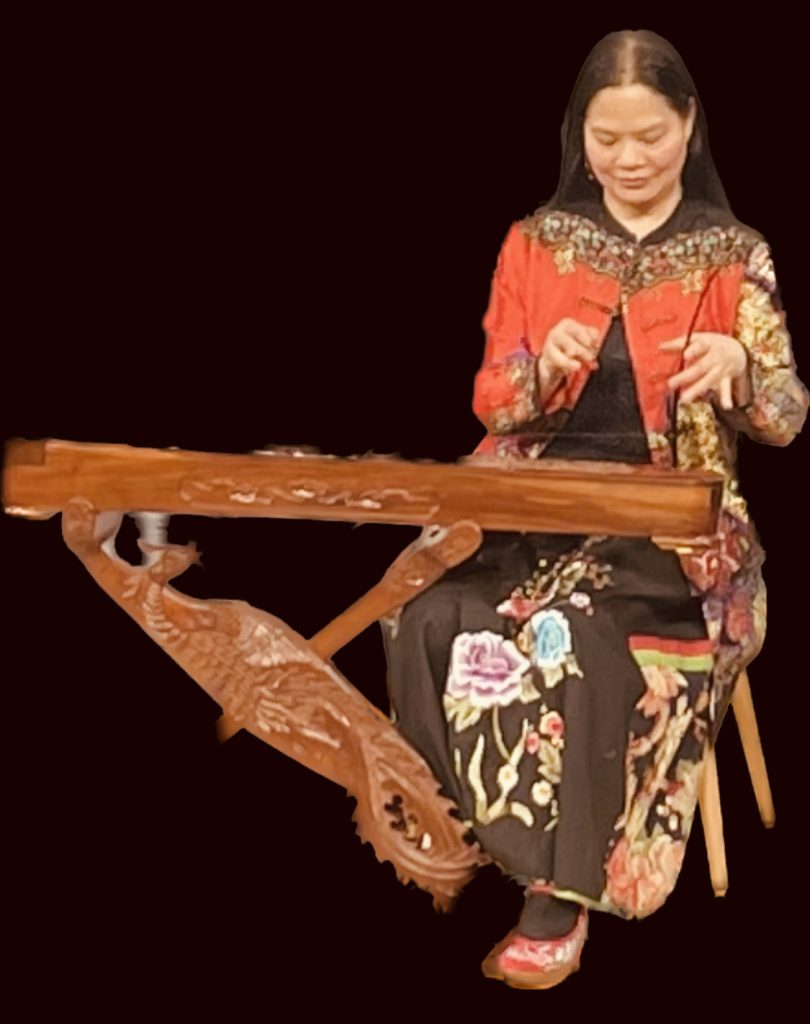
There are no borders in music, Her work has become a bridge for cultural interchange. She wishes more people would enjoy the erhu and learn to play it, and would like to see this traditional instrument become ever more popular in the United States.
